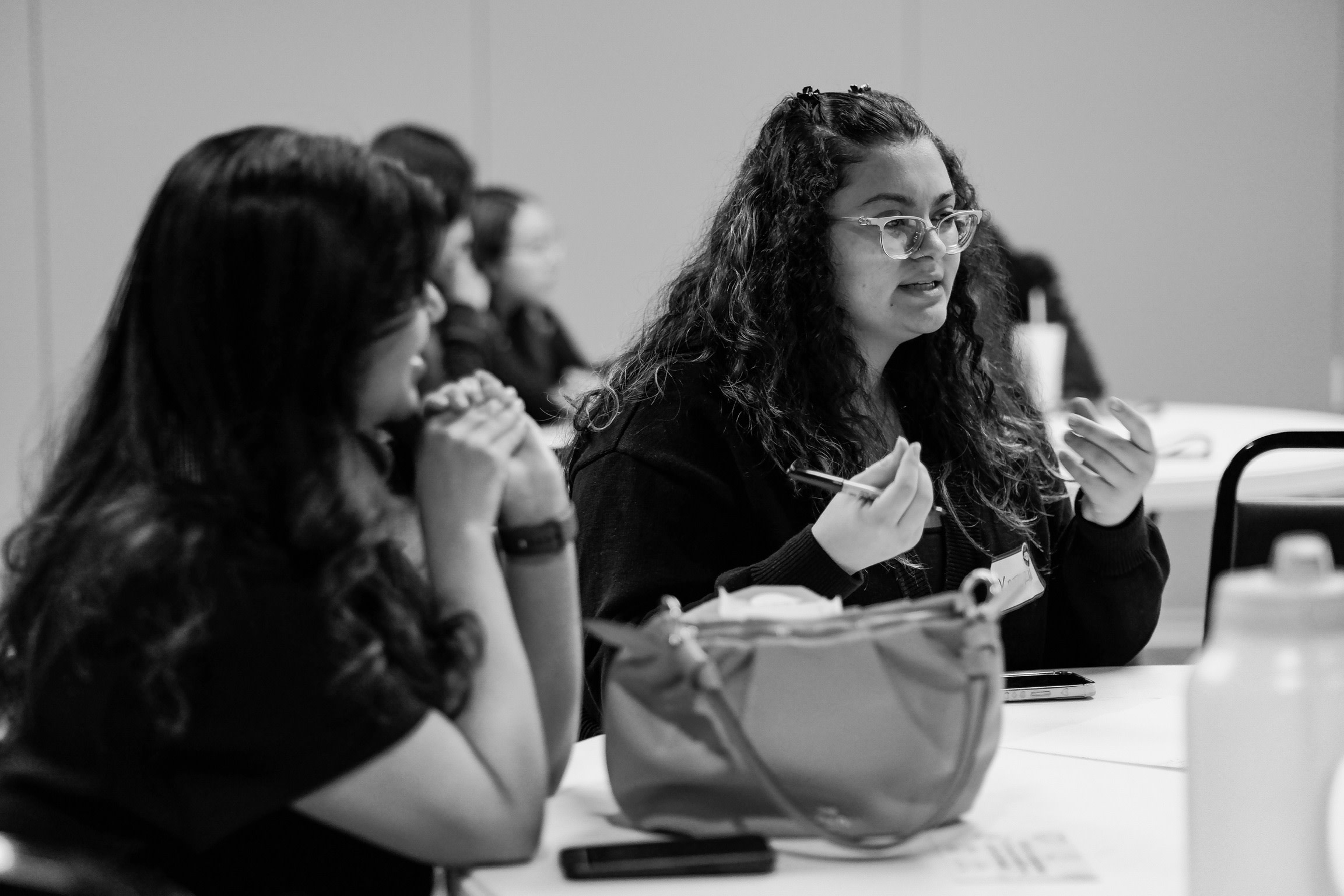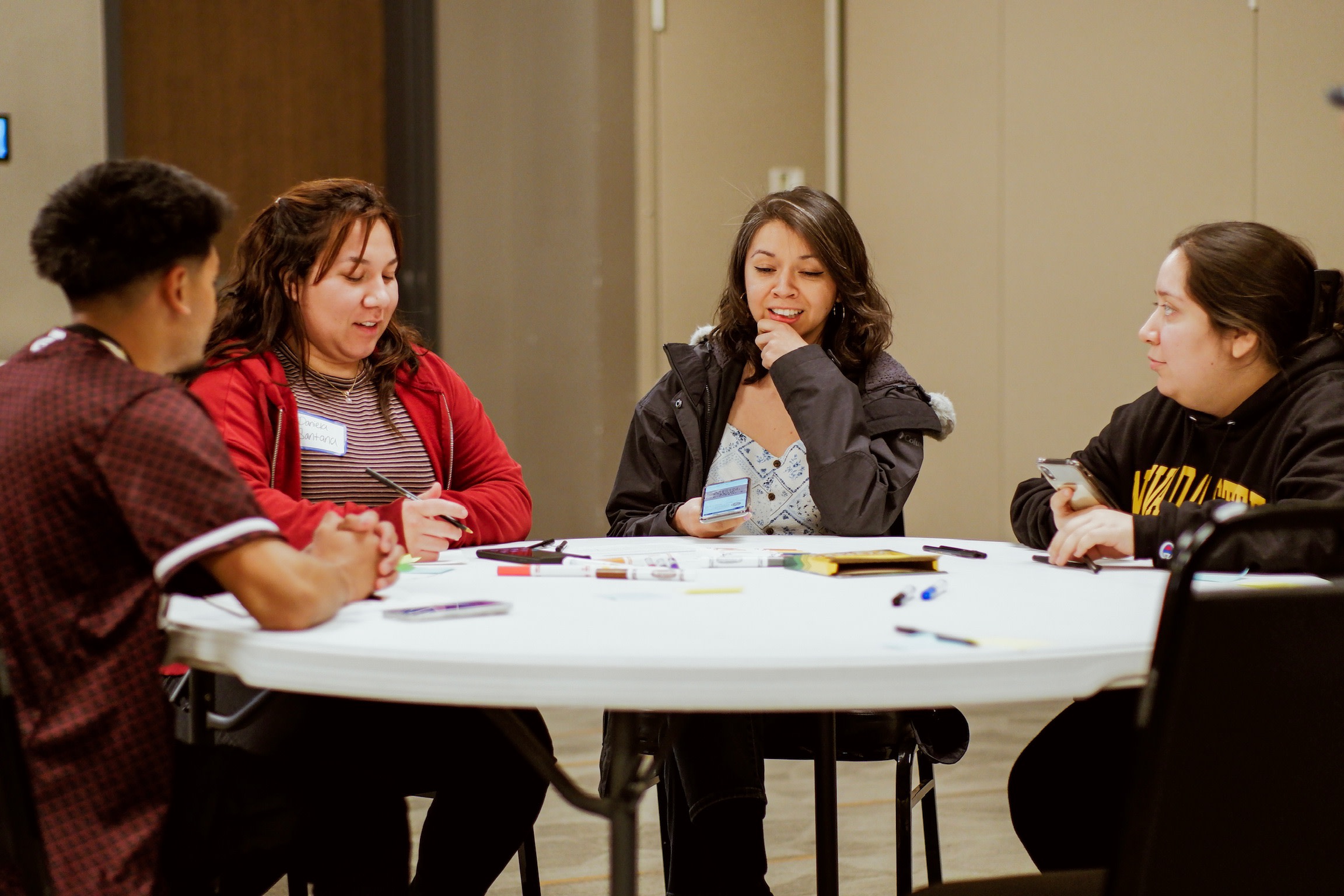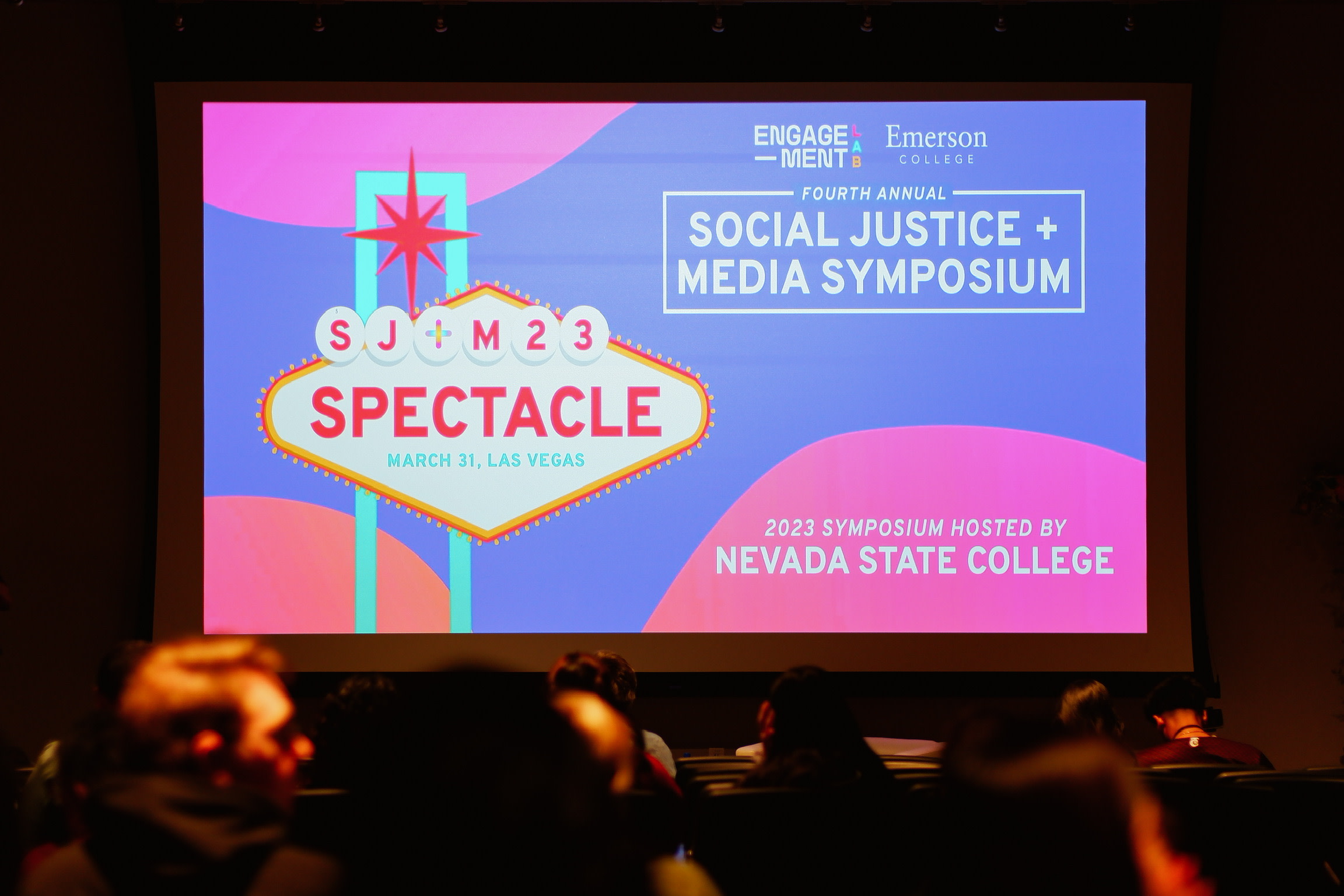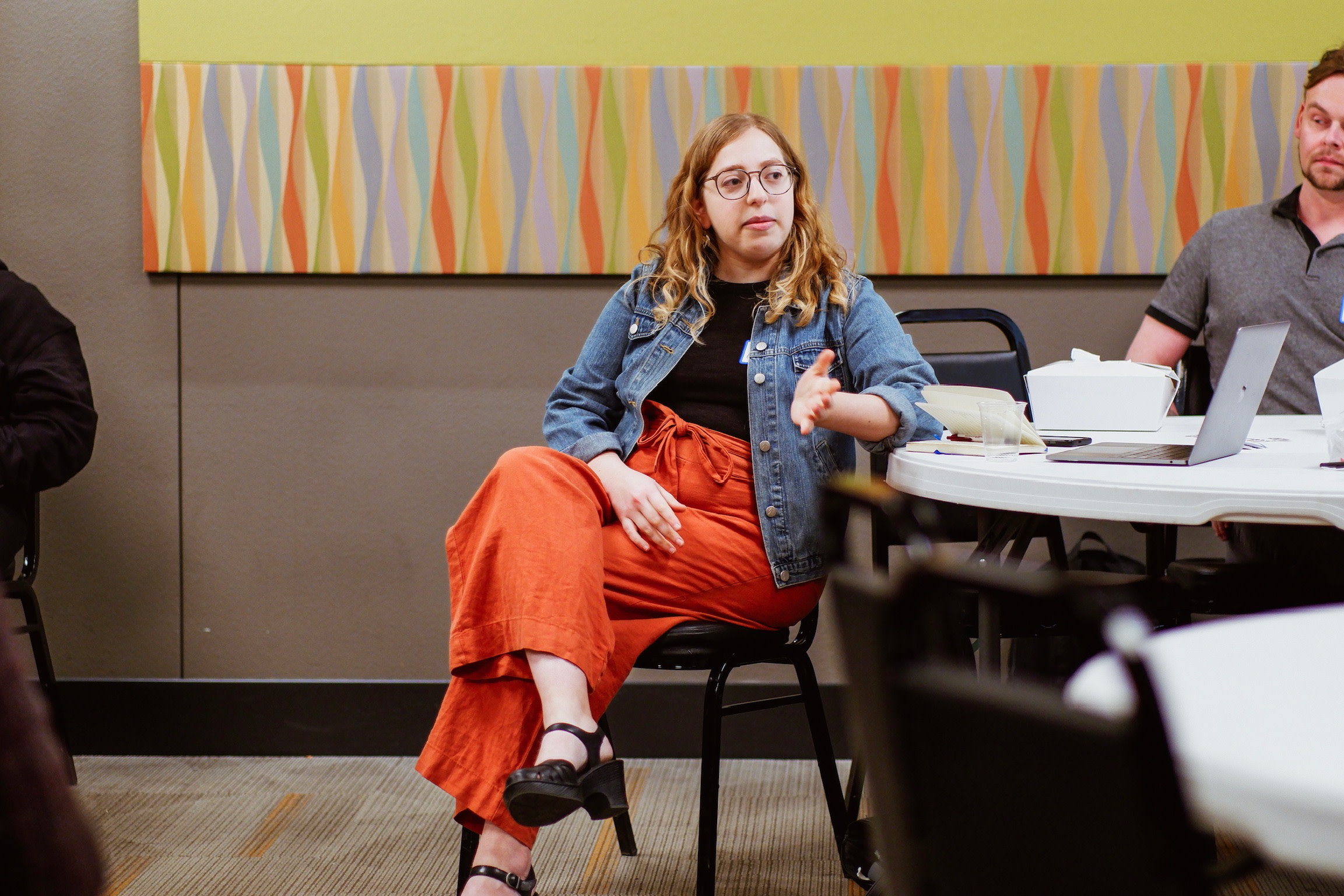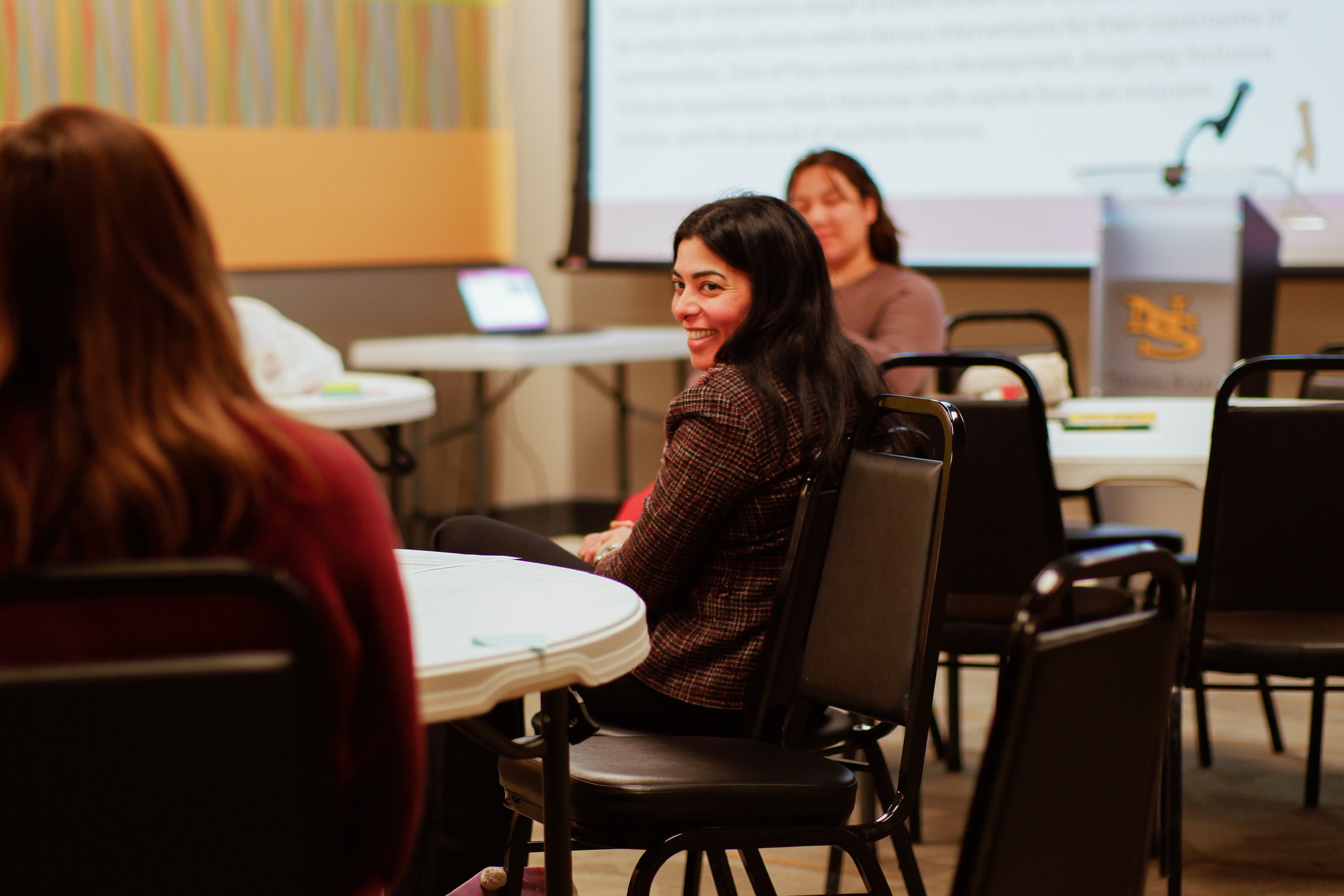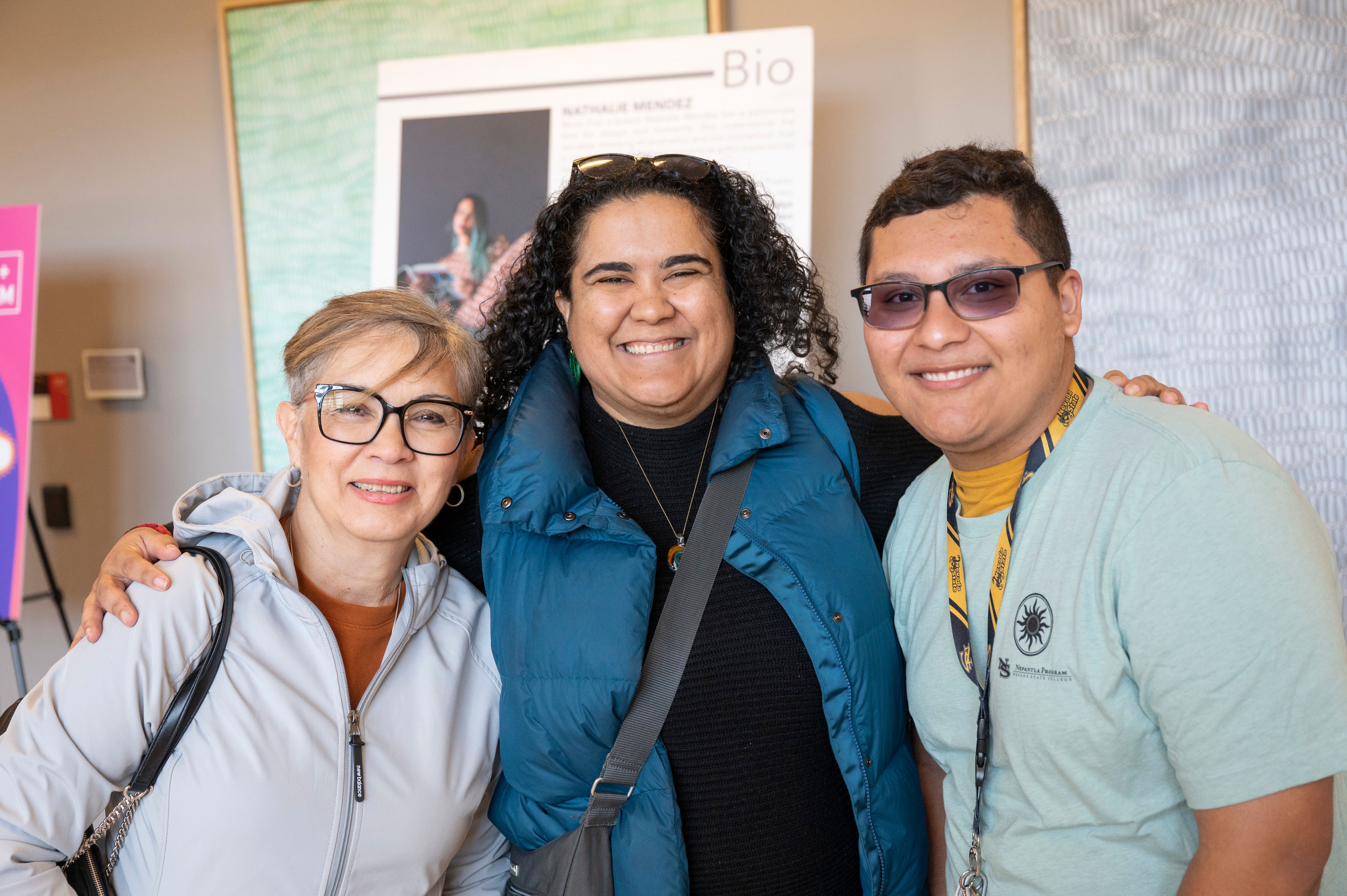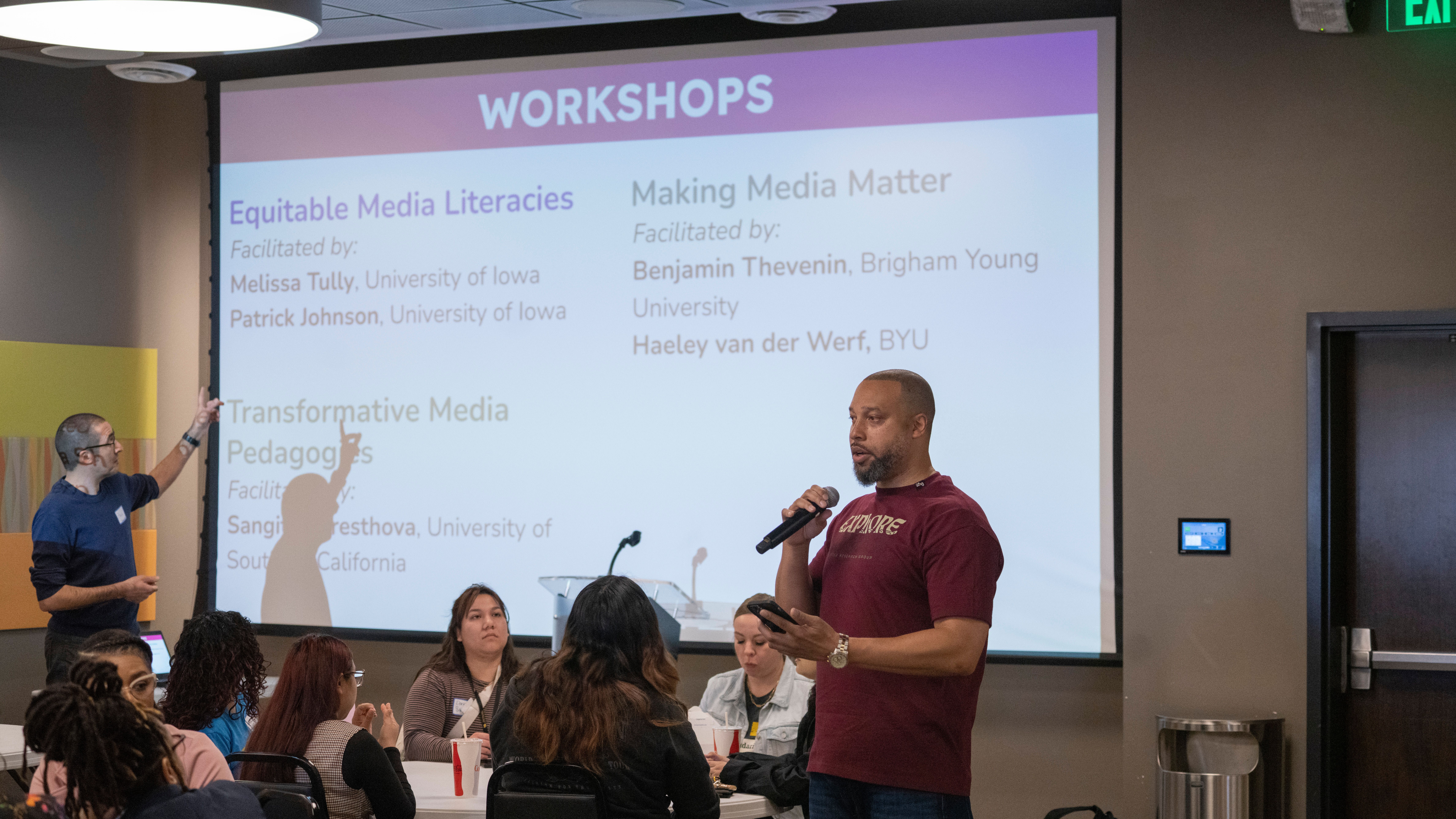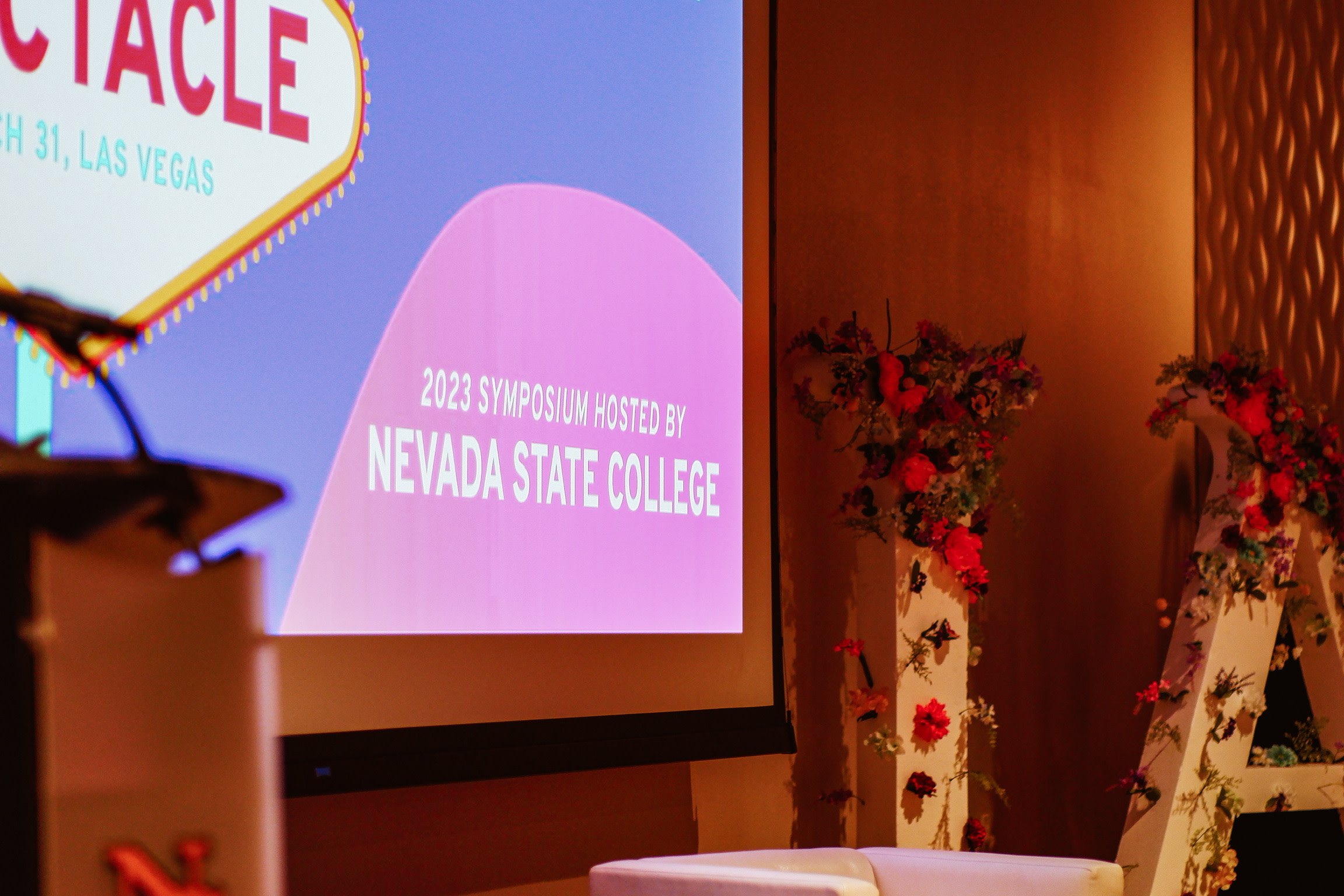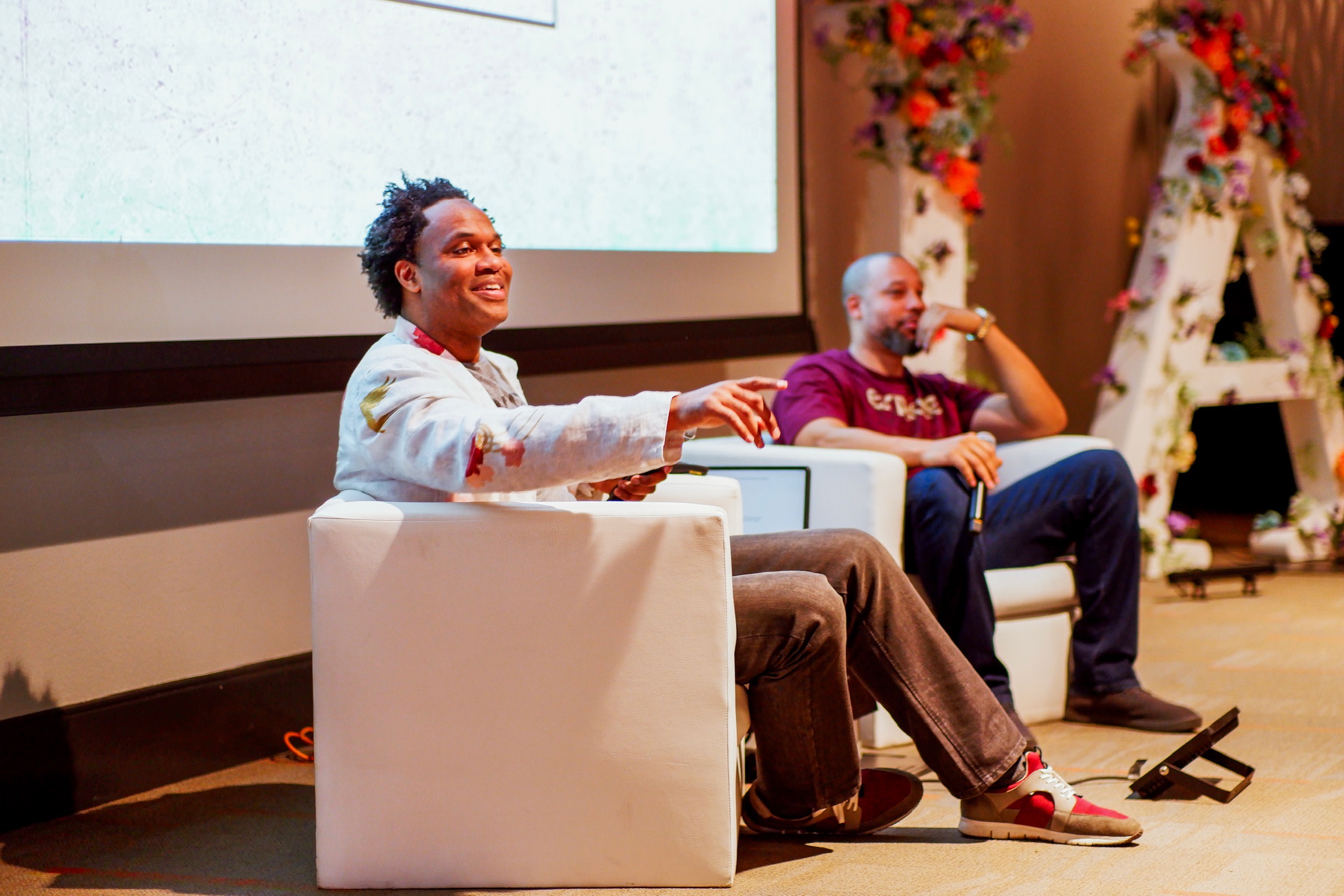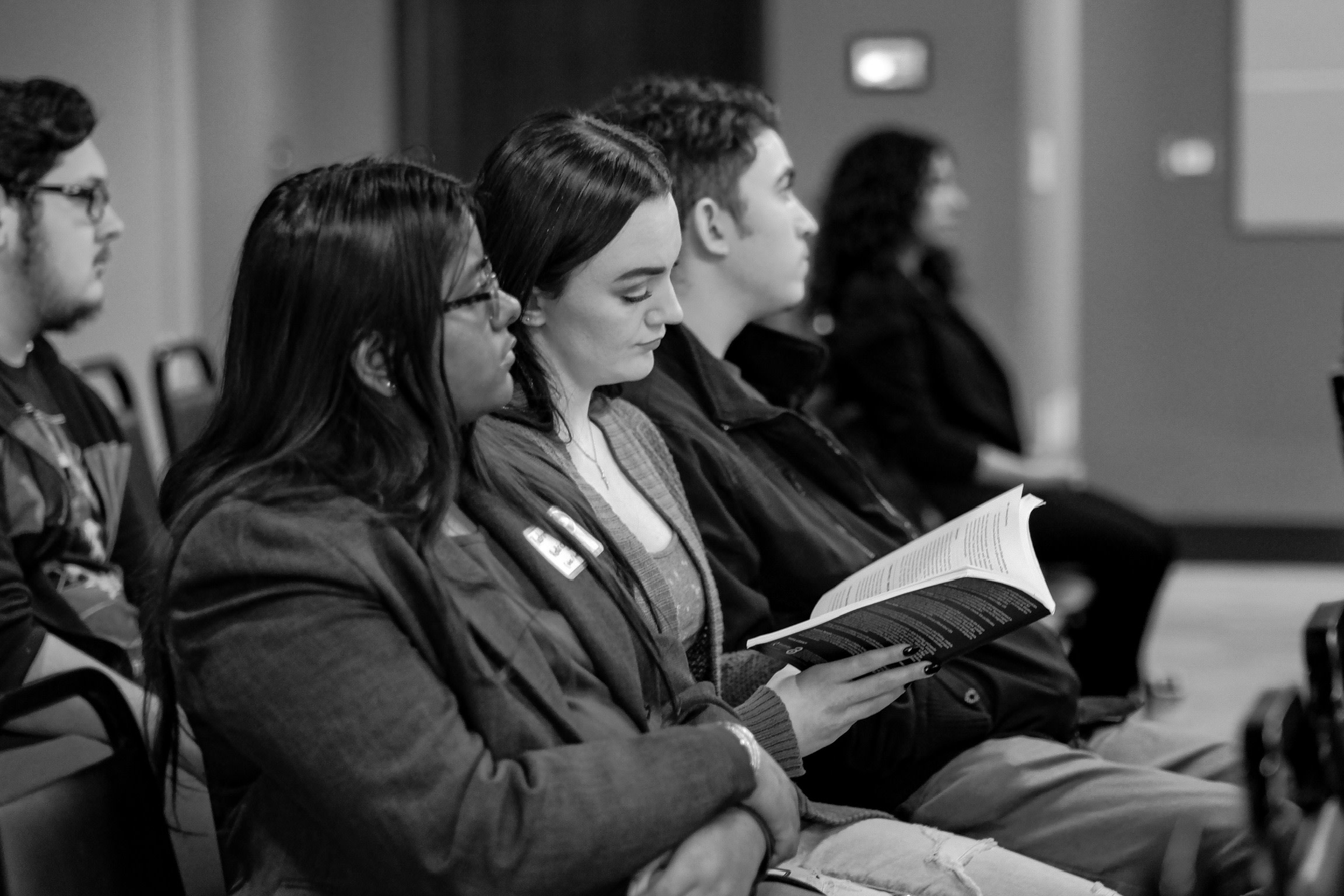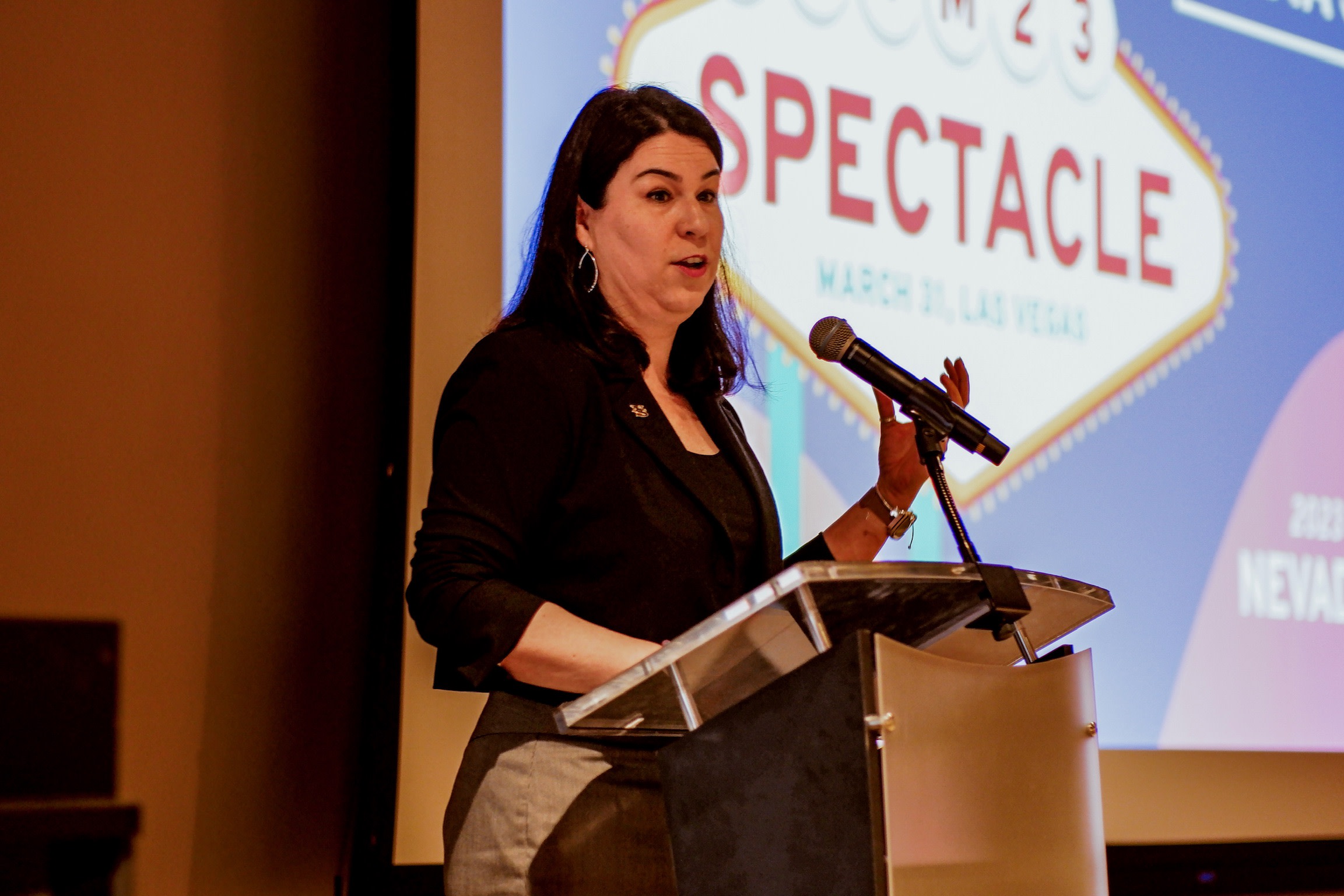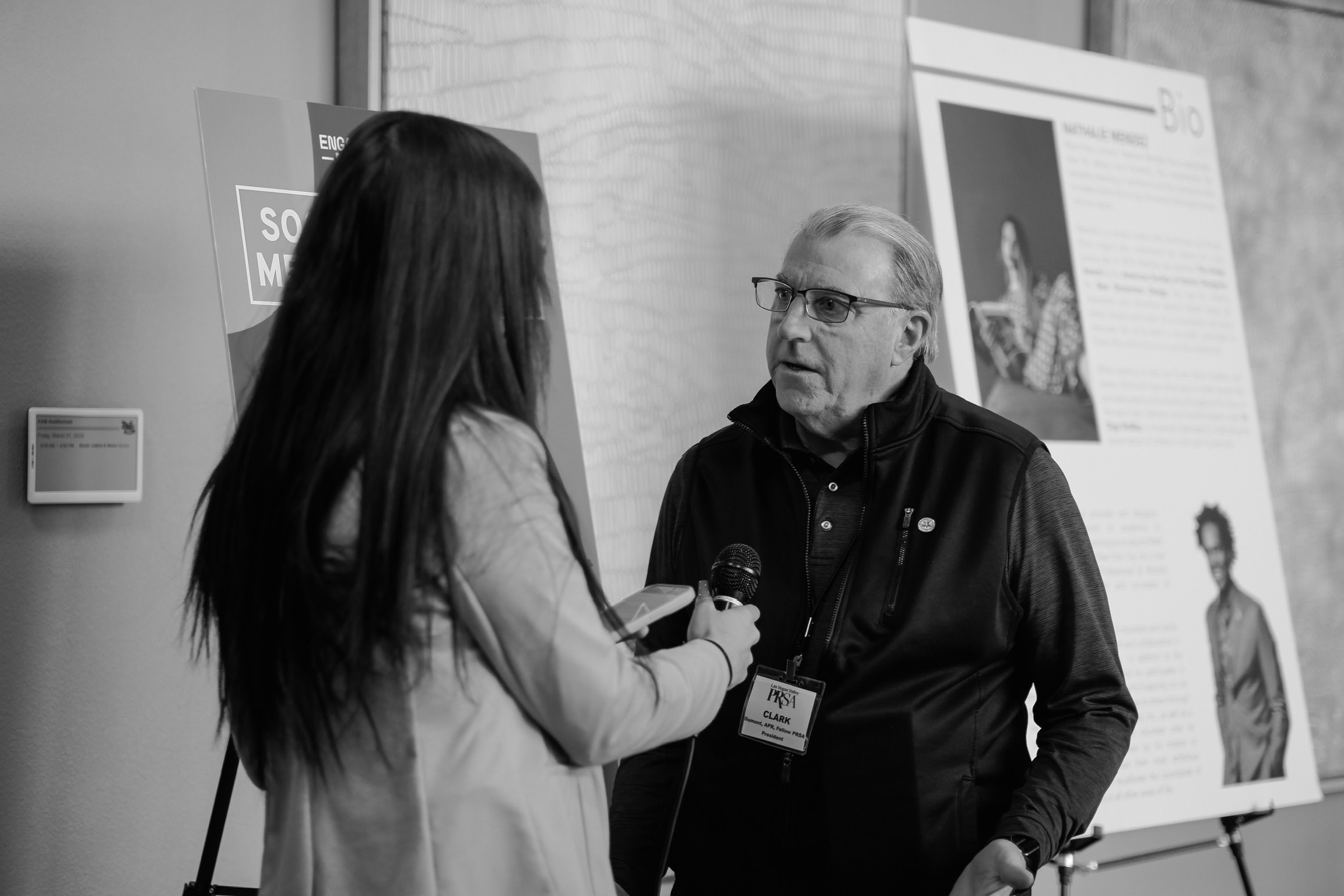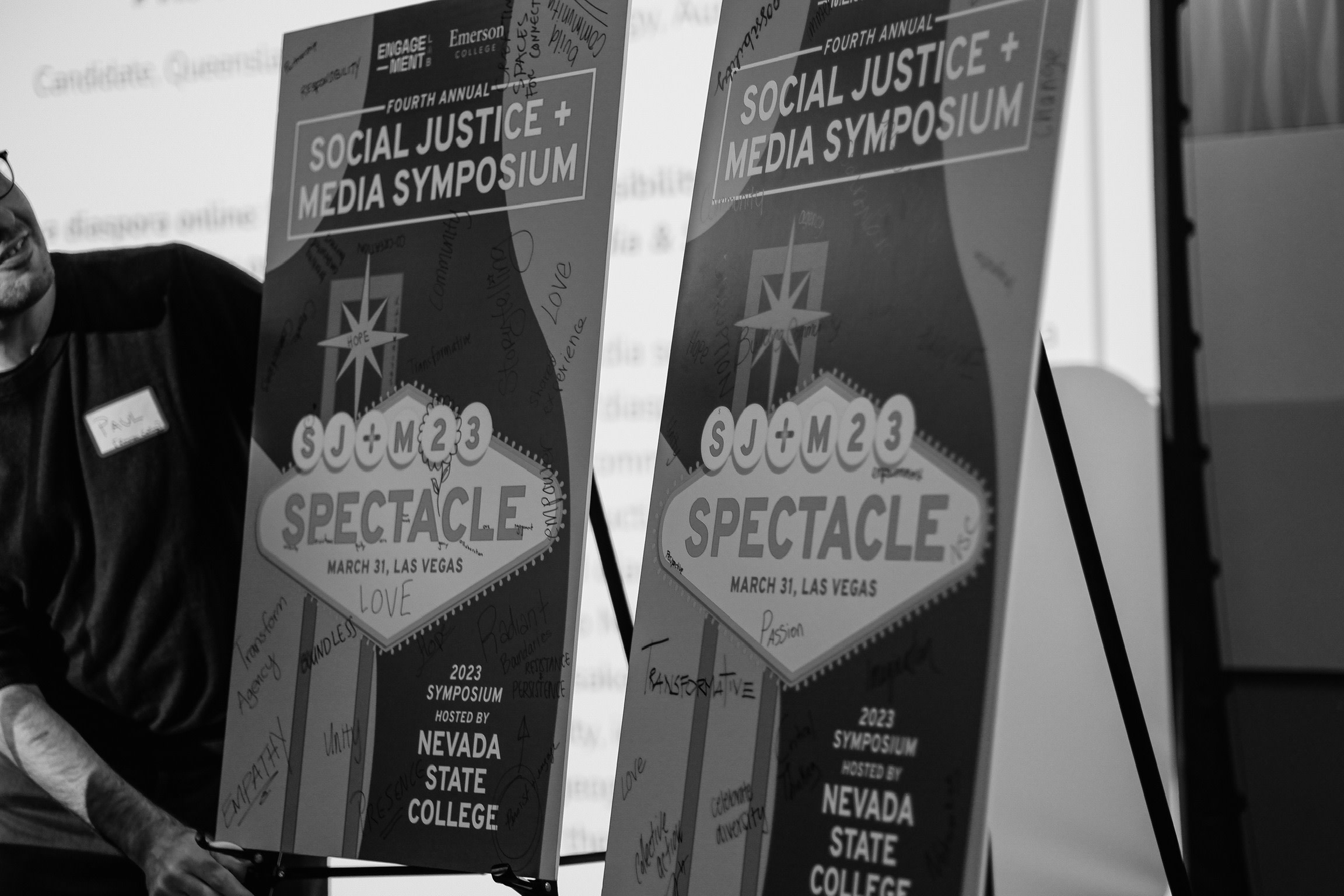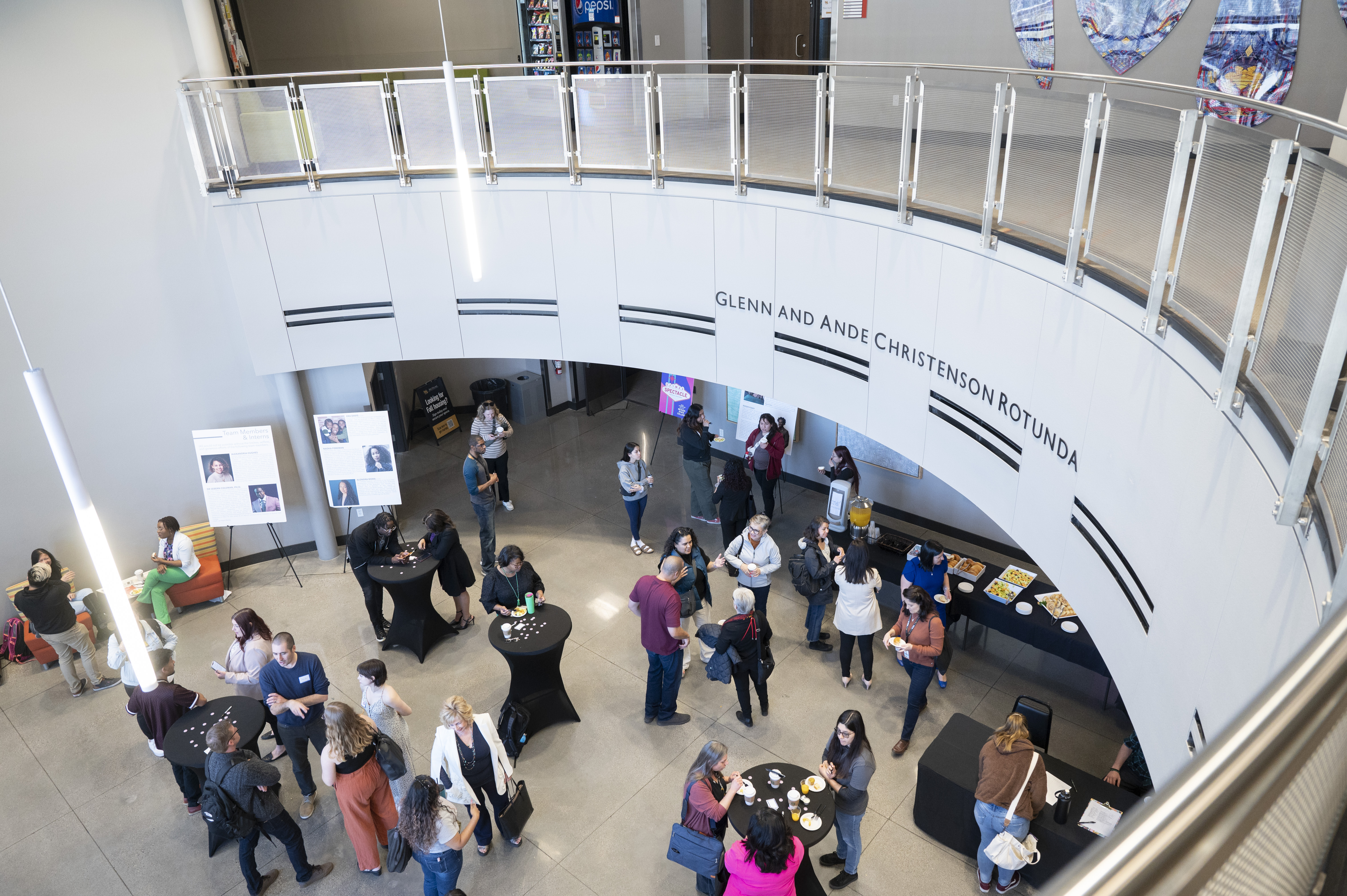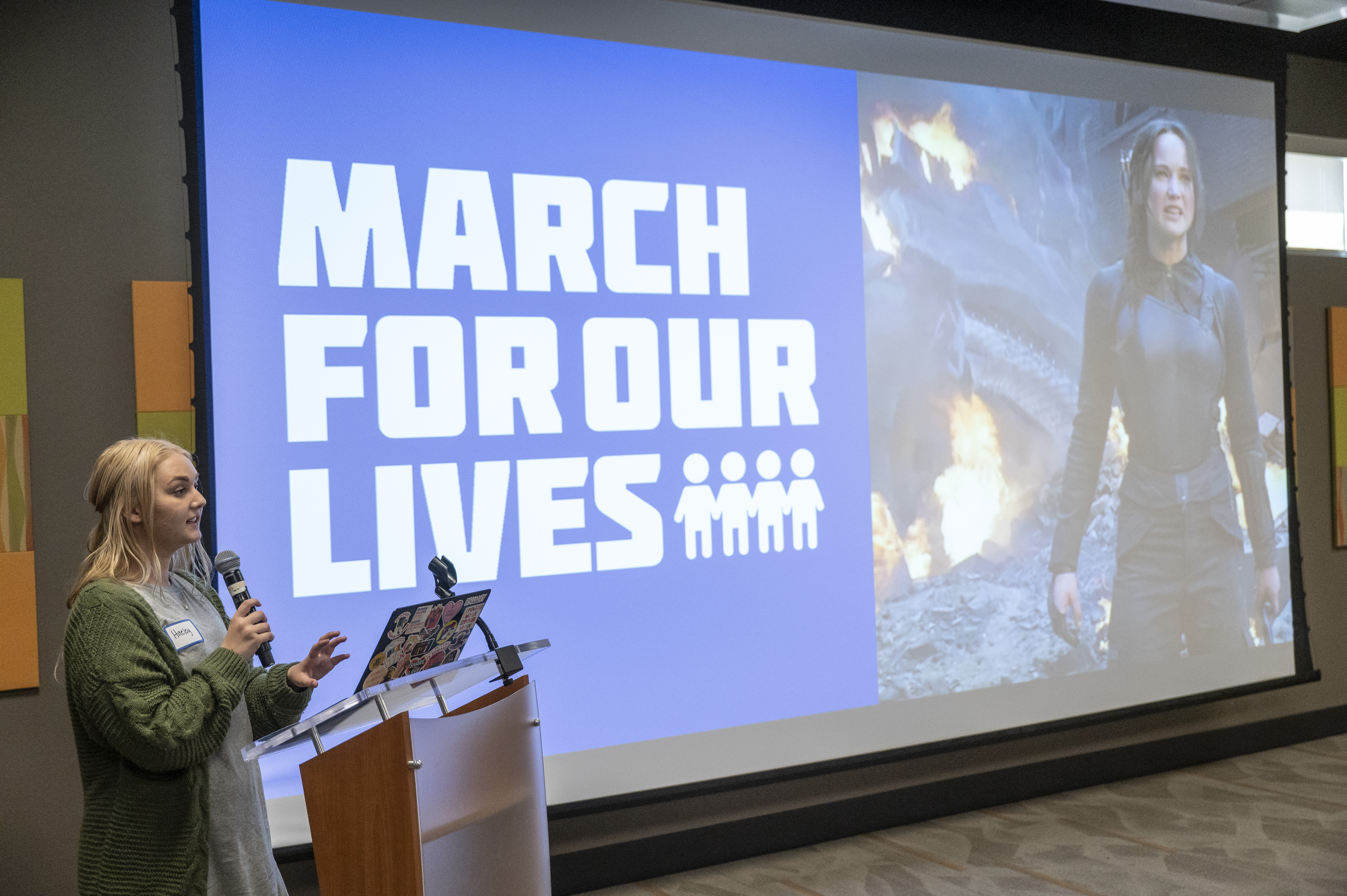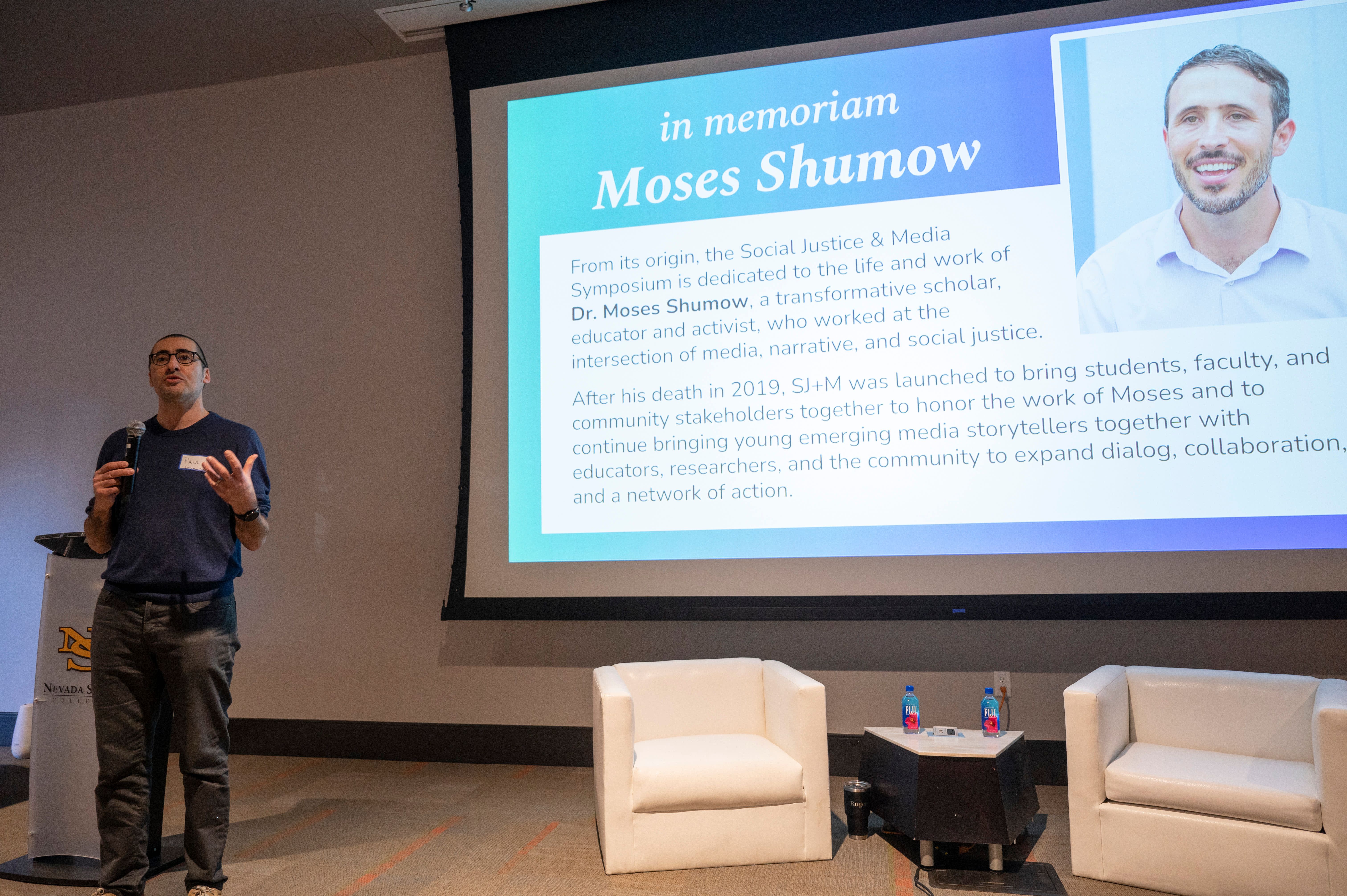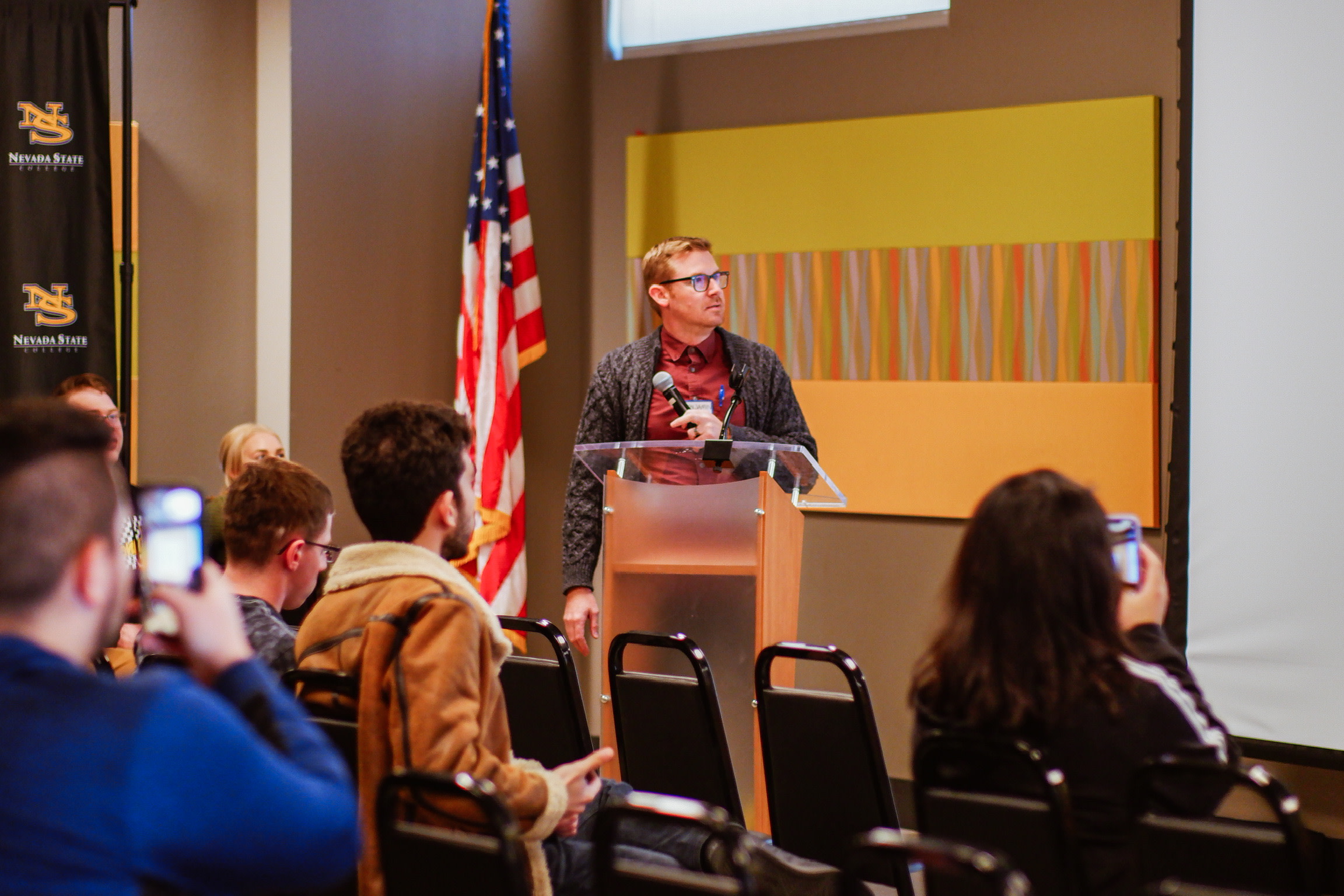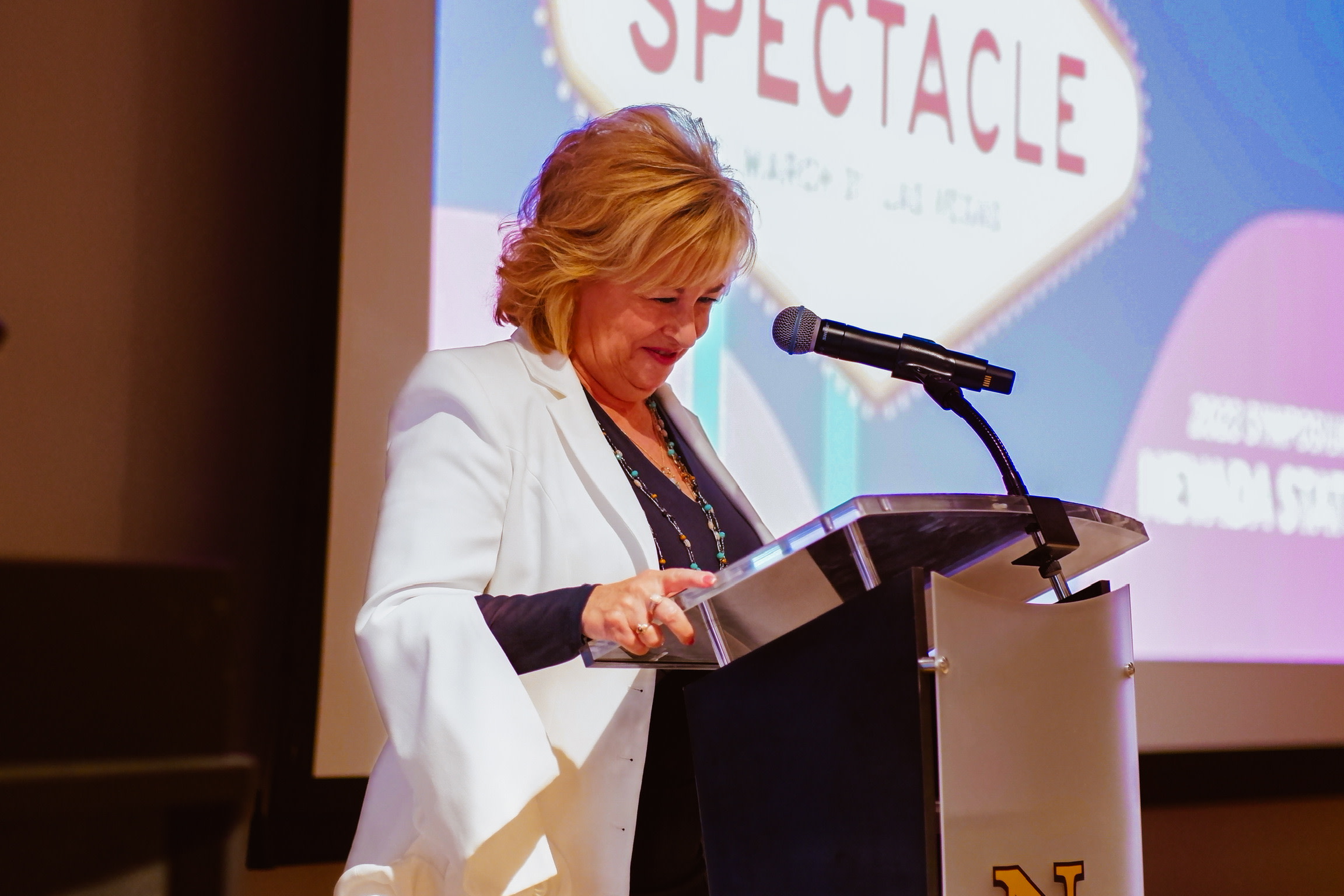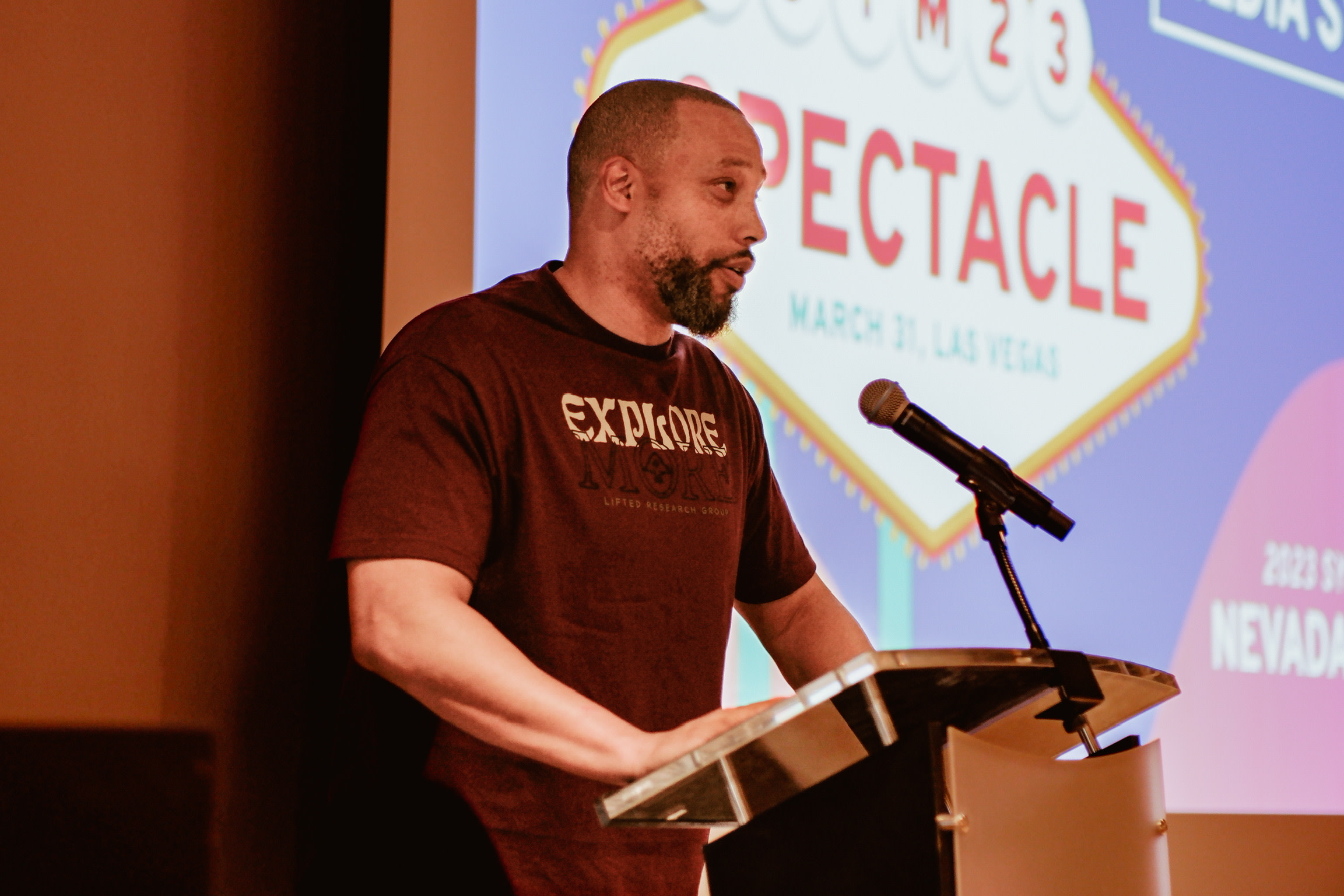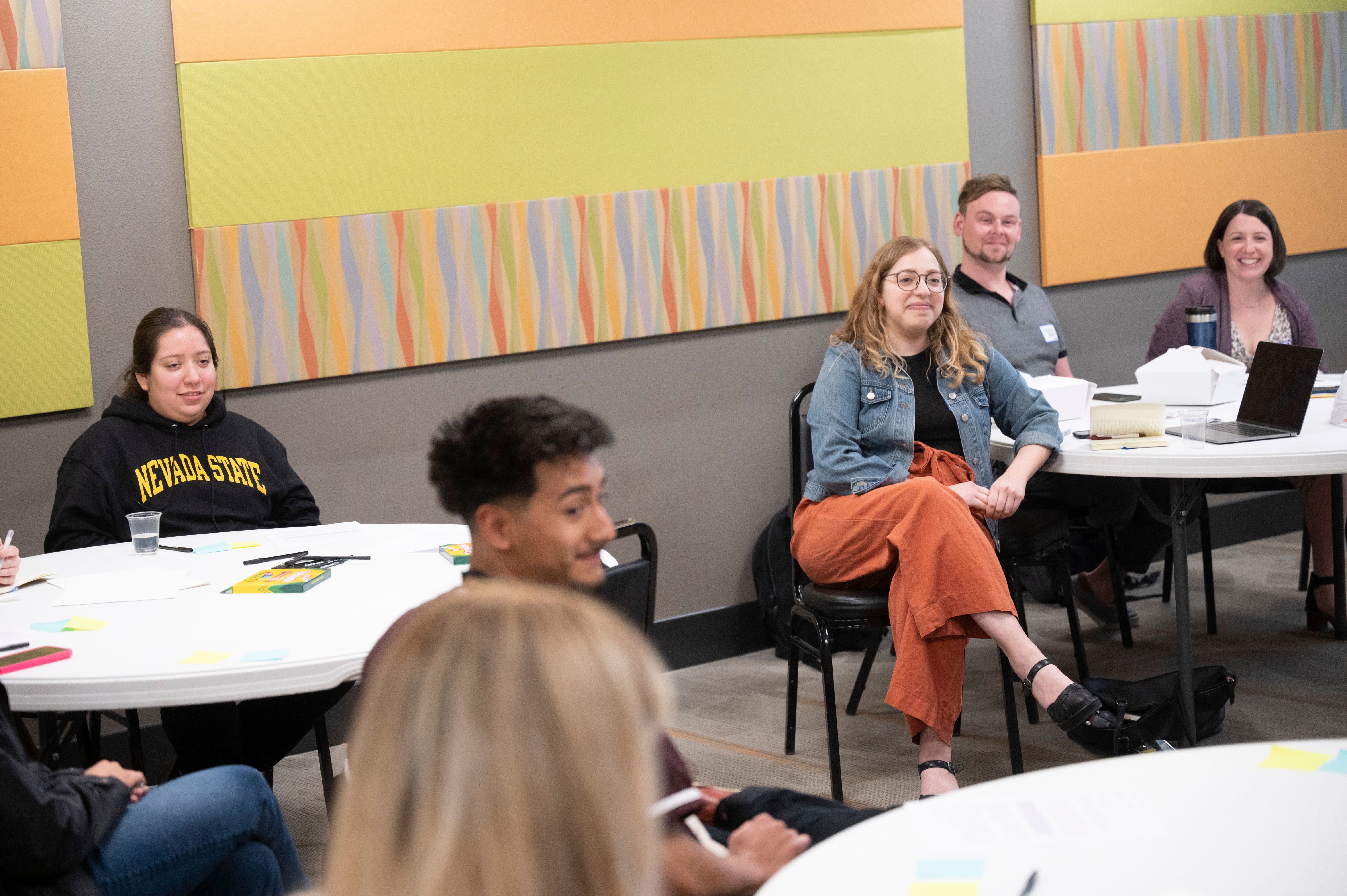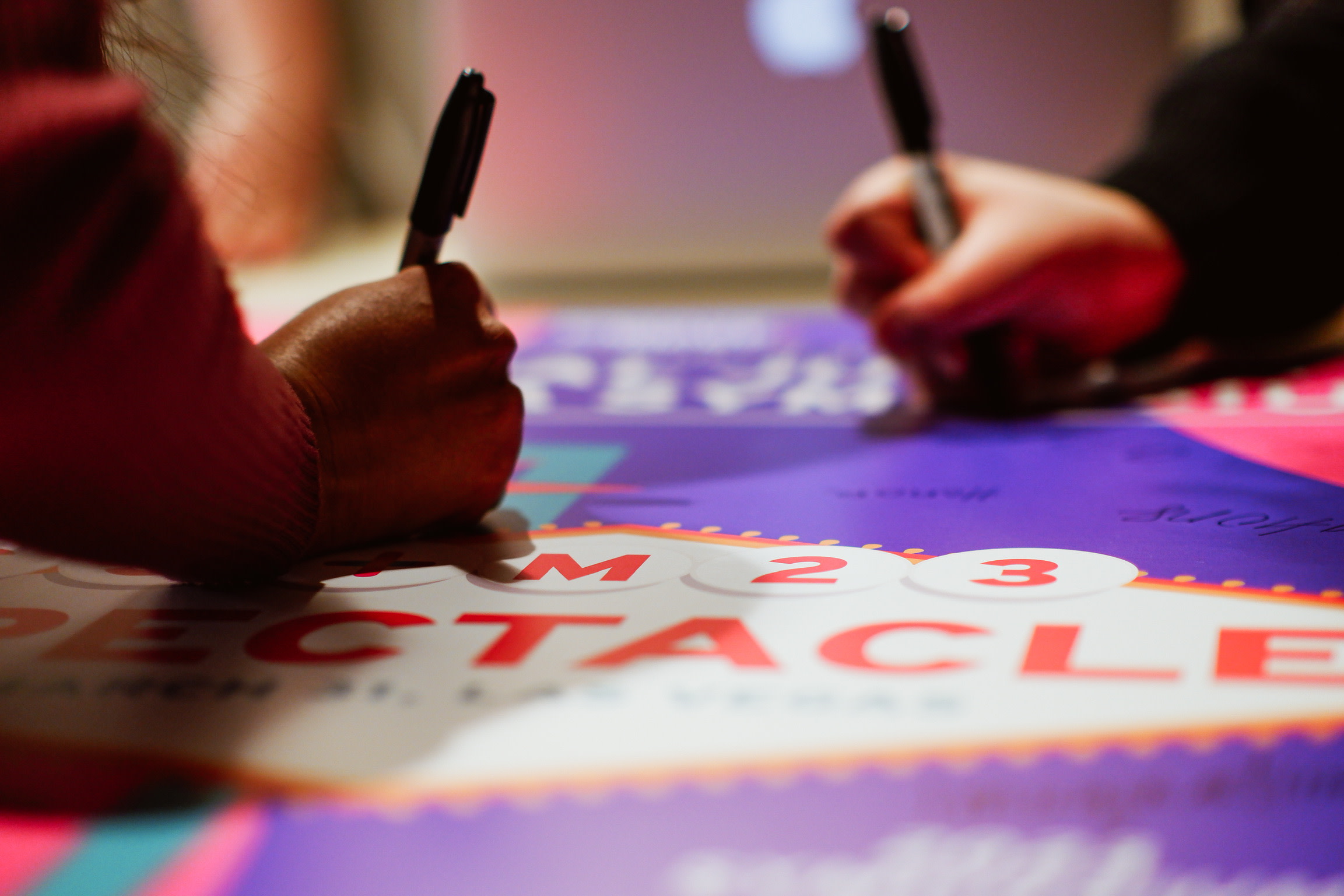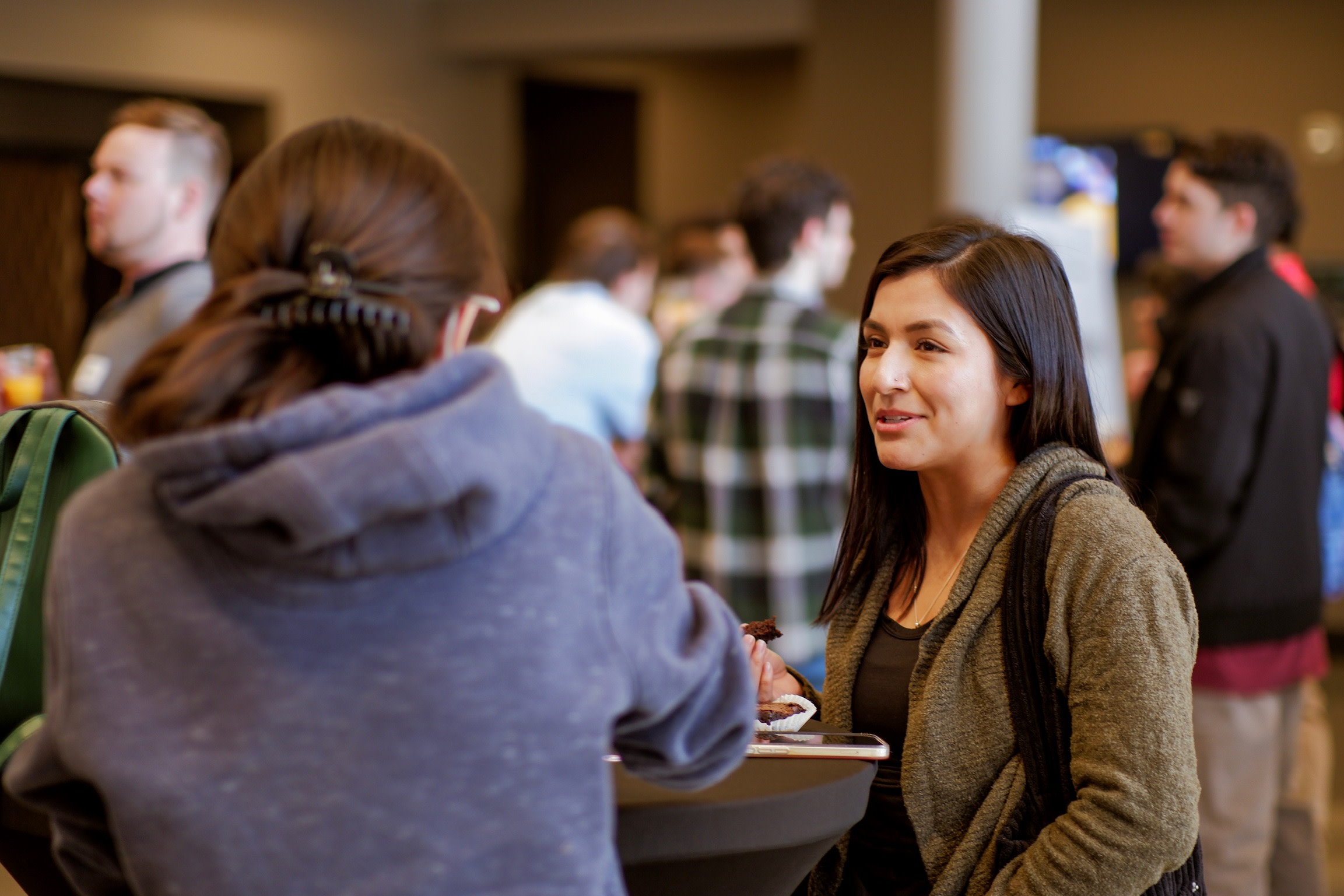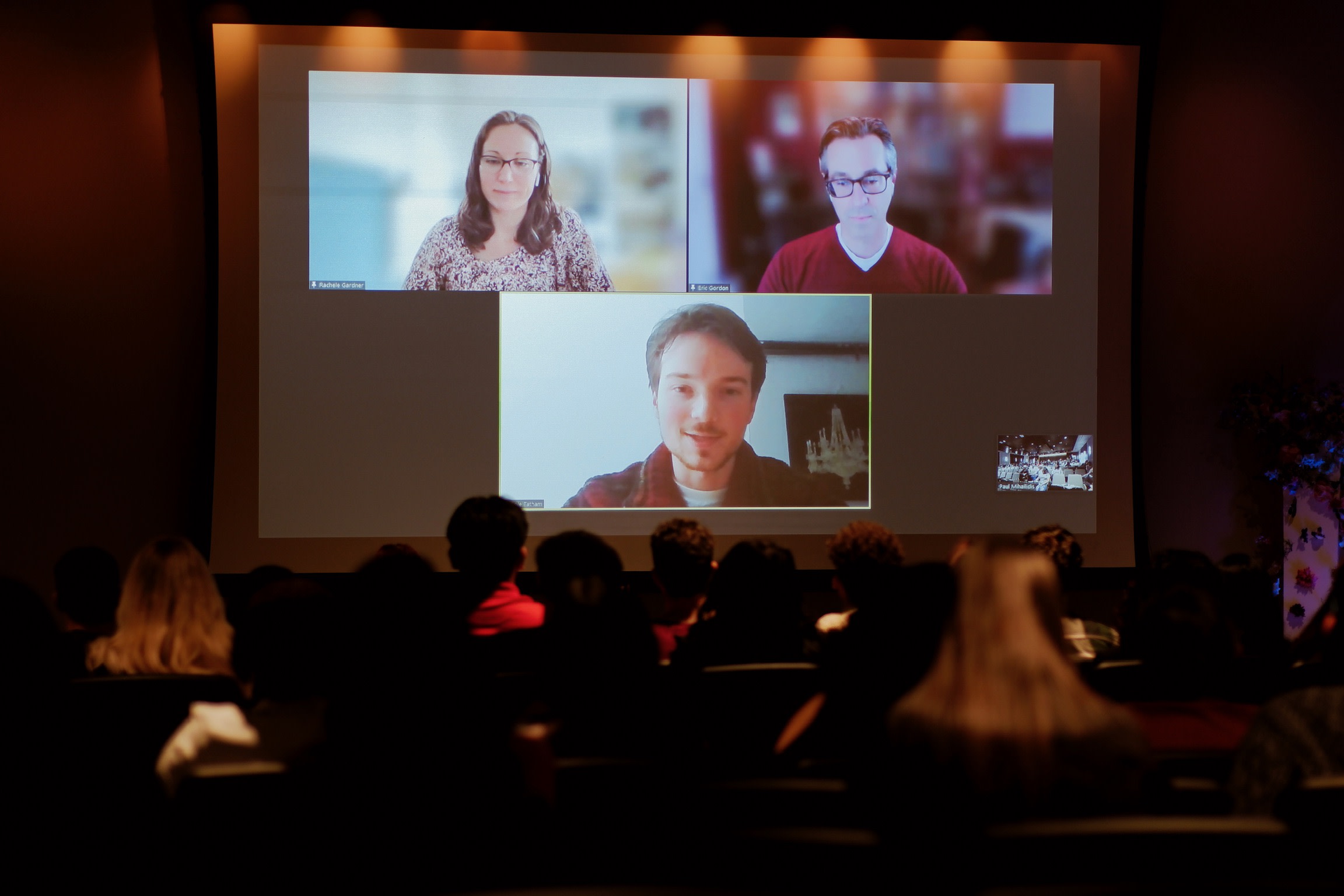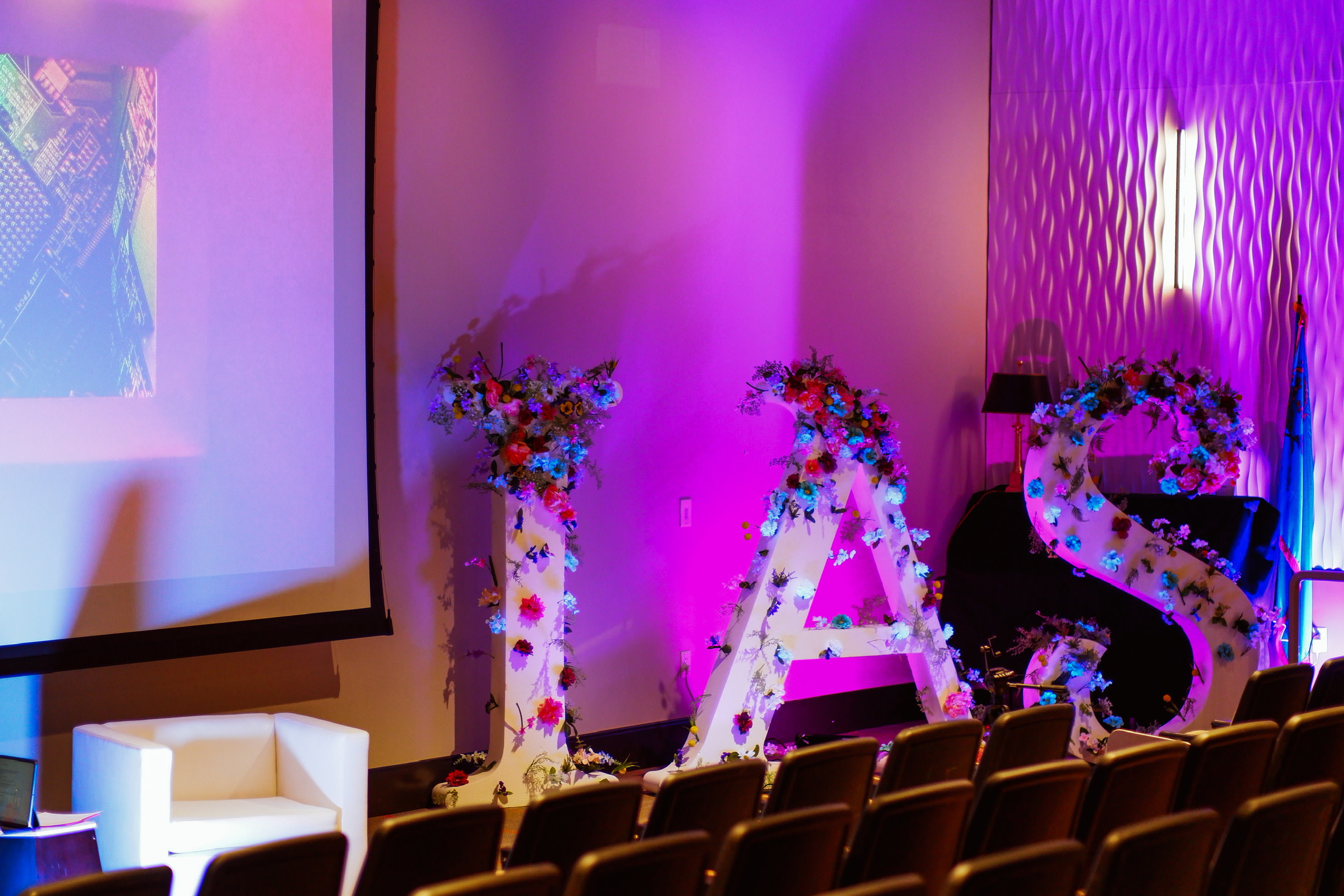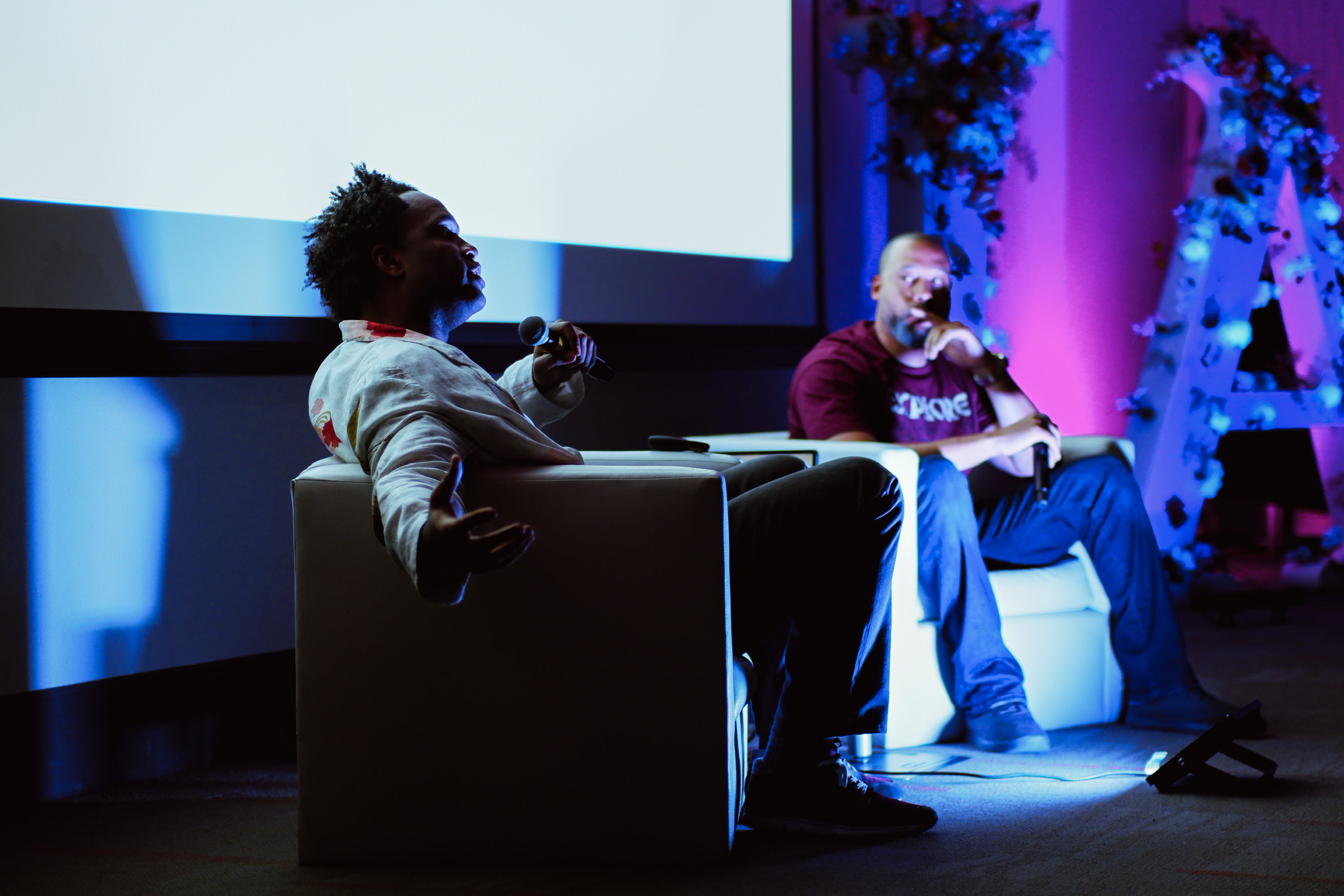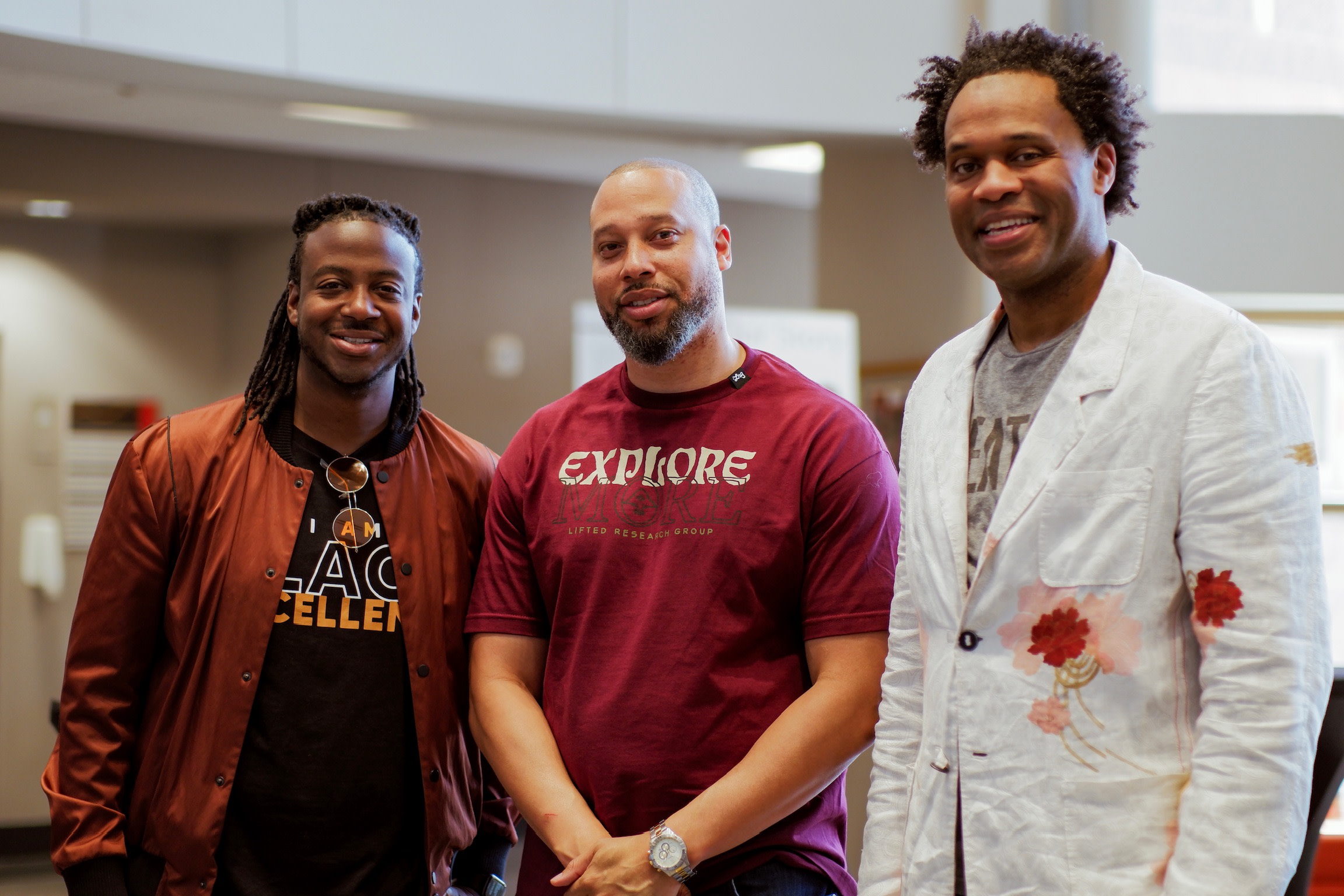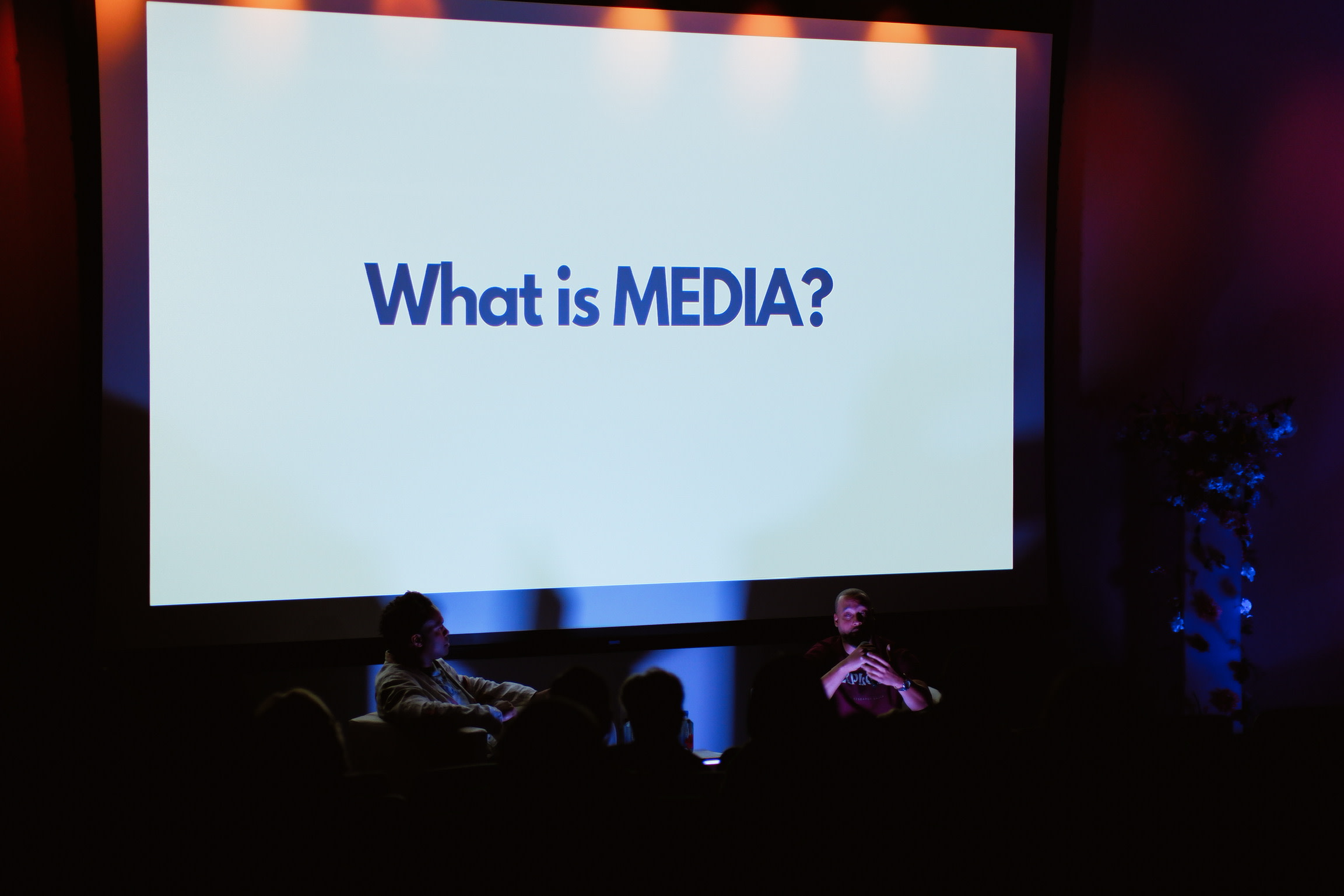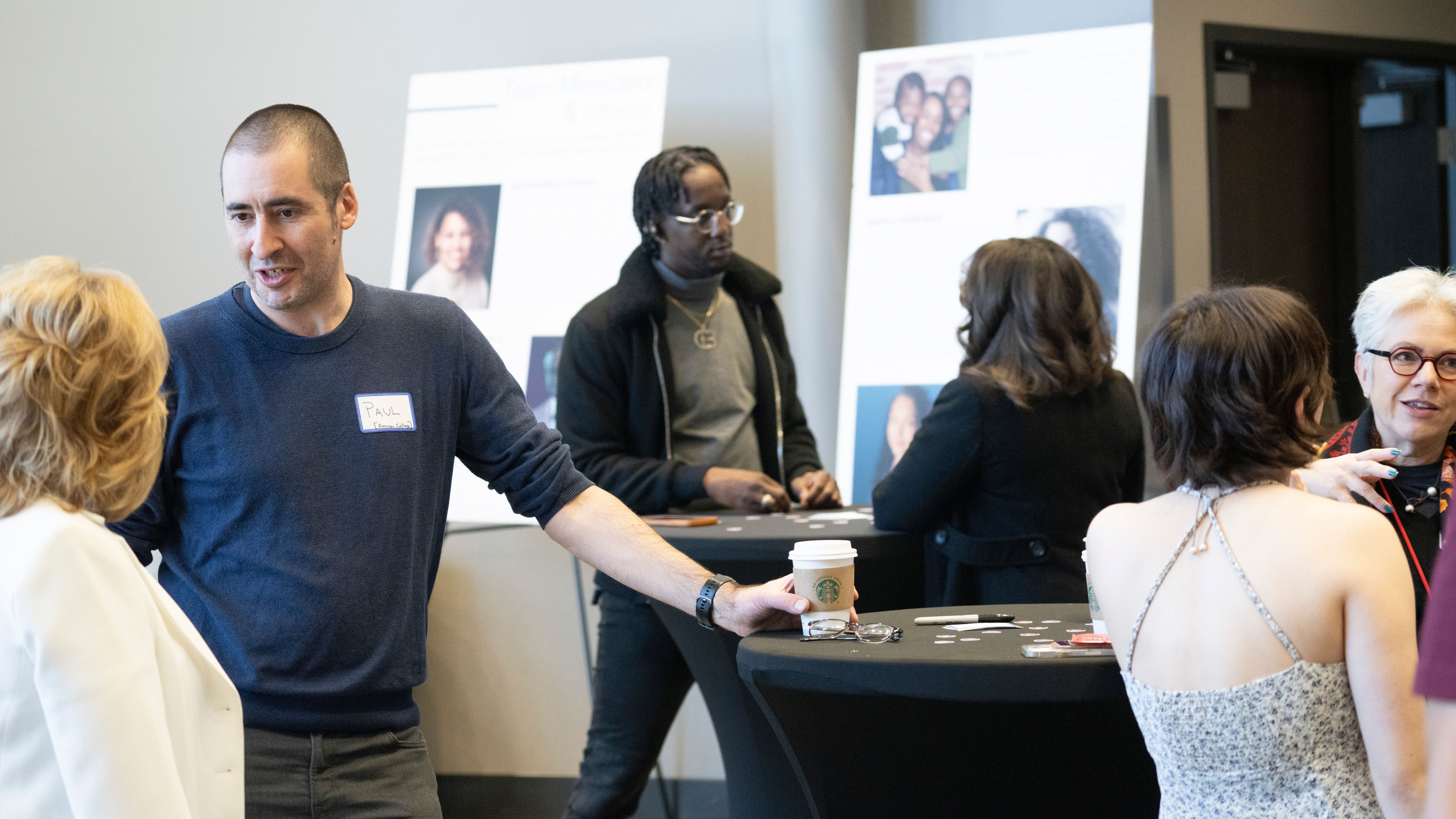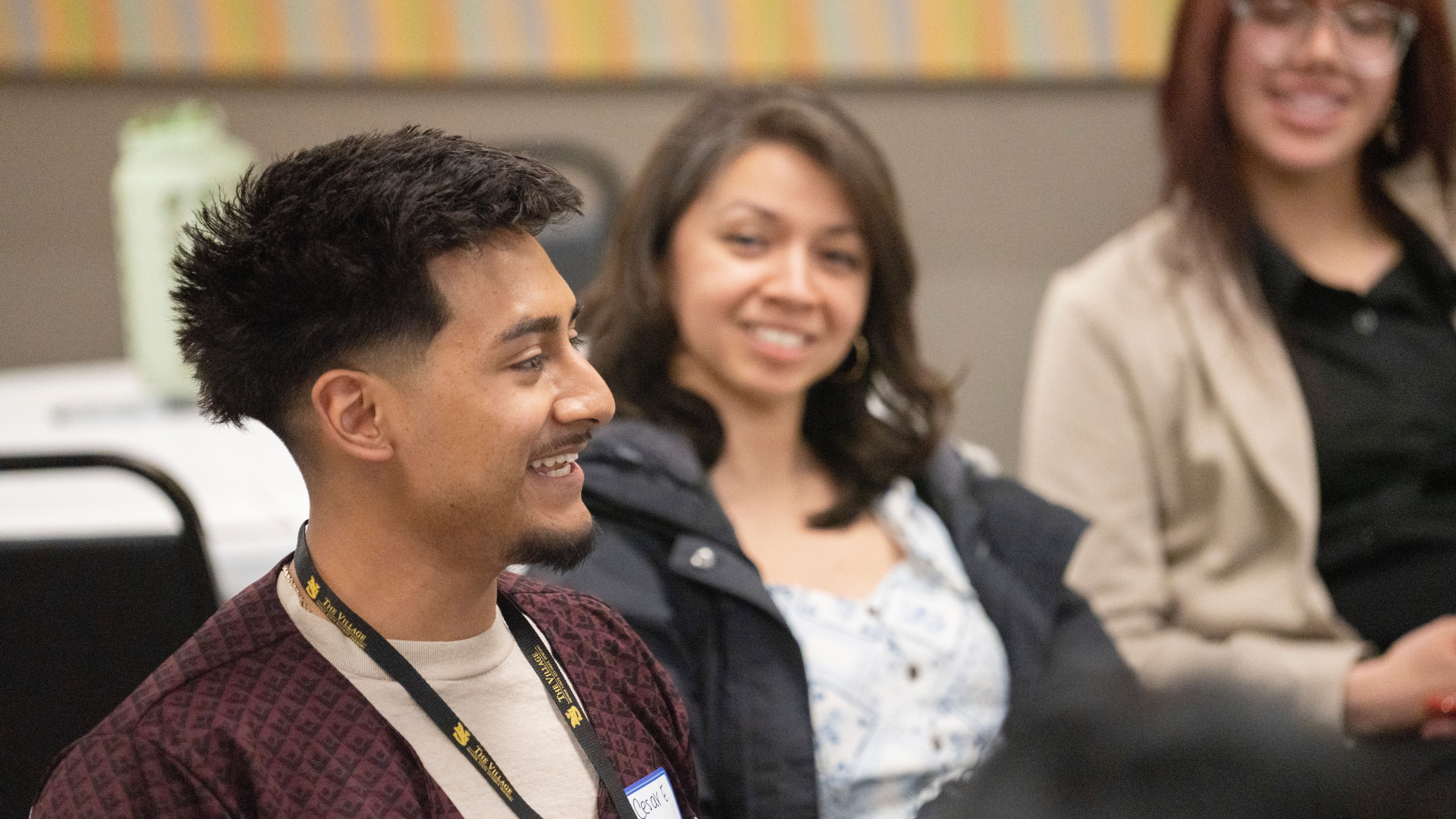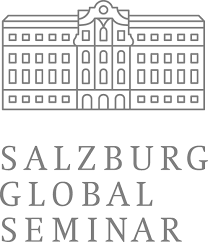2023: Spectacle
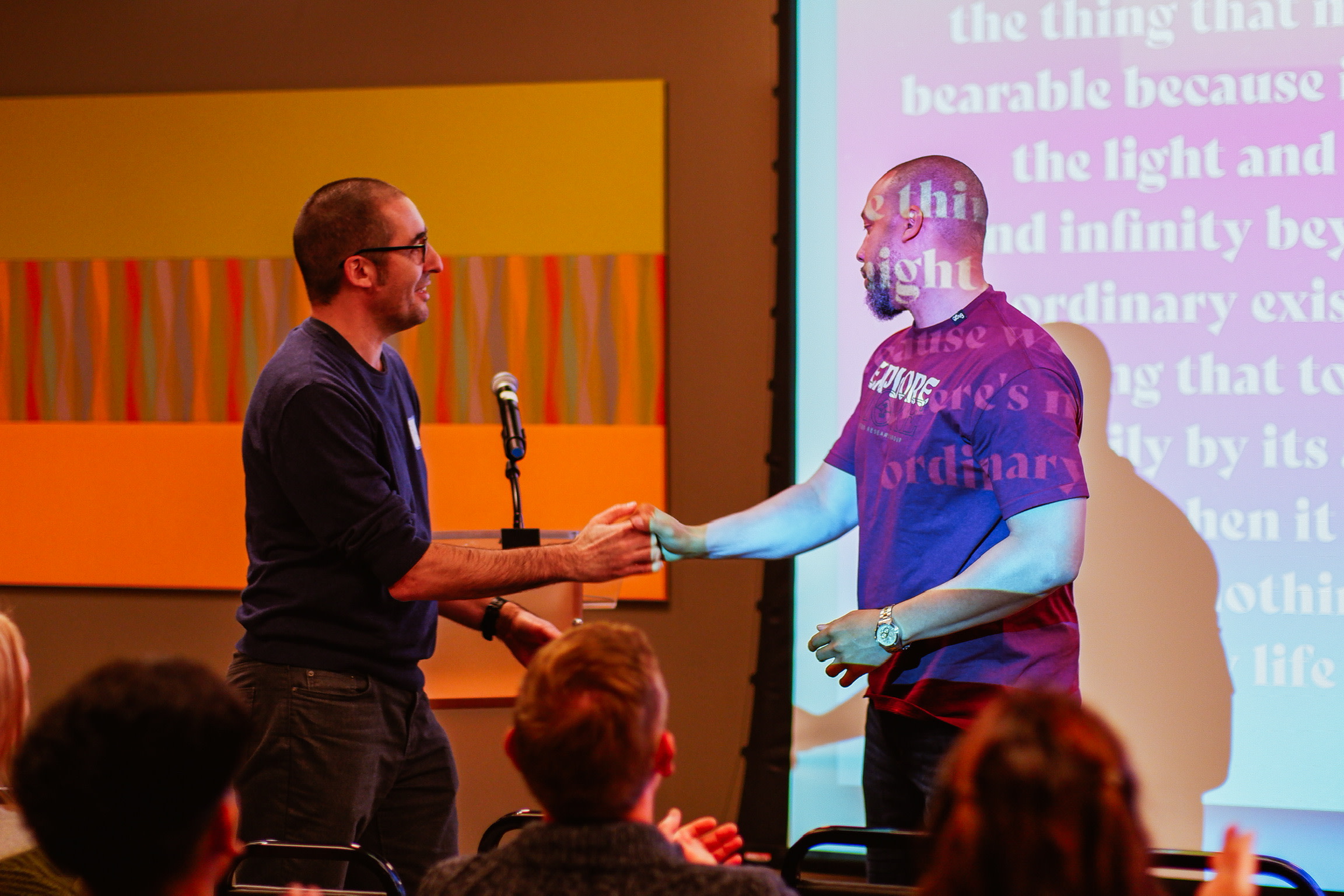
Spectacles are all around us.
With little regard for veracity or truth, spectacle exists to engage, entertain, and normalize the need to be stimulated. The ways in which we learn about the world are increasingly dependent on the platforms and networks that provide space for information exchange, expression, consumption and production. These deeply mediated spaces prioritize that which spreads fastest and furthest. In other words, they prioritize and create spectacle.
Physical spectacles do the same. Peering into the Vegas Strip, we see a hub for that which is built on spectacle, where structures are built to wow their audiences, and the physical spaces are meant to entertain, stimulate, and occupy the minds of their users.
Hidden behind spectacle is the labor that sustains it. In media spaces, users spend time clicking, liking, reposting, viewing, and sharing, creating and sustaining the spectacle that envelopes us. While audiences now drive much of what spreads in mediated environments, they do so in an ecosystem of algorithms, programmed to prioritize information that is emotionally resonant and that stimulates response. In physical spaces, the labor exists to maintain the notion of grandeur, perfection, entertainment, catering. This labor is often unseen, unheard, and under-resourced.
The 2023 Social Justice + Media Symposium interrogated the concept of Spectacle, in the digital environments that drive our daily information routines, and in the physical environments of Las Vegas, where spectacle exists all around us. The symposium explored the ideas of visibility and invisibility, of inequity and power, and of agency and voice, in the context of spectacle culture and its impact on civic and democratic futures.
For more information about the Social Justice + Media Symposium, about Moses Shumow, or if you are interested in joining this network, please contact Dr. Paul Mihailidis at [email protected]
Agenda
9:30 - 10 AM
Coffee
10 AM
Welcome
Chris Harris, Host and Professor, Nevada State College
Dr. Vickie Shields, Host and Provost, Nevada State College
Amber Lopez Lasater, D.P.P Chief of Staff and Strategy, Nevada State College
10:15 AM
SJM Symposium: Honoring the Work and Life of Moses Shumow
Paul Mihailidis, Symposium Coordinator & Professor, Emerson College
Rose Shumow, Media Producer
10:30 AM
Keynote: A Conversation with Roger Perry
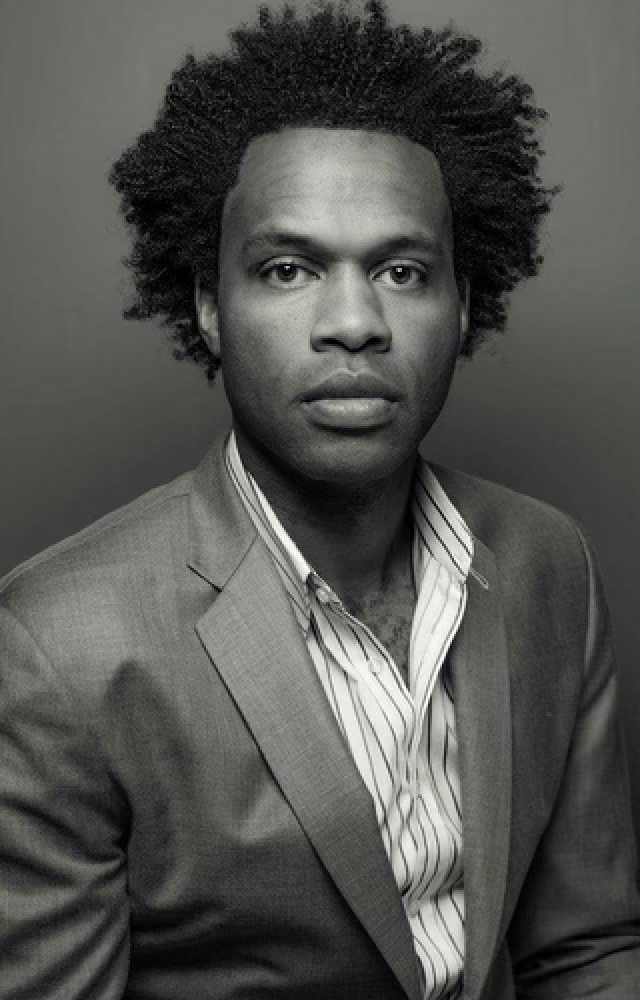
Roger Perry is a designer and creative service provider, transitioned from academia into the world of hospitality via entrepreneurship. Previously serving as an adjunct Math Professor and Associate Dean in New York City, he is now the owner and operator of Professional & Reliable Bartending in Las Vegas, Nevada and creator of Immersive Art Space.
Roger believes that community engagement is important and works tirelessly to integrate collaboration in all the projects he executes. In addition to the community service-oriented events he participates in through his fraternity, Kappa Alpha Psi Fraternity, Inc, he also lends his knowledge and abilities to others through his role as TackMaster for Thumbtack, Inc, as well as a variety of other charitable and volunteer roles he actively serves in. He’s driven by his mission to empower others to pursue their most ambitious professional goals and recalibrate the boundaries of their perceived limitations in all other areas of life.
11:45 - 12:00 PM
Break
12:00 PM
Lunch, Screening, and Discussion
Screening: Quiet Rooms
This 20-minute documentary about the impacts and root causes of gun violence was co-created by Emerson students and community members. The bracingly honest interviews featured in this piece reflect the trust in process that was made possible through truly collaborative work. The "direct animation" or painted film strips seen throughout the film were created by students and partners in response to the prompt: "represent how you feel when you think about gun violence in your life and in your community." The result is visually stunning and emotionally charged transitions throughout.
Read more about the documentary below:
1:00 - 1:30 PM
Lunch
1:30 - 3:00 PM
Workshops
(See full descriptions below)
Transformative Media Pedagogies (Sangita Shresthova, USC)
Equitable Media Literacies (Melissa Tully & Patrick Johnson, Iowa)
Radical Media Education Futures (Chris Harris & Erika, NSC)
Making Media Matter (Benjamin Thevenin & Haeley van der Werf, BYU)
Closing Plenary Activity
3:30 PM
Awards Announced & Closing Remarks
4:00 PM
Adjournment
Workshop Descriptions:
Born out of the experiences at the Academy and a process of collective reflection, the Transformative Media Pedagogies book (Routledge 2021) explores the concept of individual and collective transformation as the underlying driver for dynamic learning experiences that support equitable and just civic futures. The book brings together scholars and practitioners who shaped the Academy over the years to share and reflect on specific processes and practices that shape its pedagogical approaches, with a look toward how what was learned in a specific place can travel across space, even in virtual or hybrid environments. In this workshop, participants explored transformative media pedagogies, which “center embodied presence with others, and the pursuit of emancipatory and liberatory social change grounded in care for others, imaginative alternatives and agentive action-taking towards positive social change.” In the interactive portion of the workshop, participants considered how their own work embraces the three pillars of transformative media pedagogies: Care, Imagination, and Agency.
The Equitable Media Literacies workshops are designed to help practitioners, educators and storytellers center equity, inclusion and justice in their media literacy work. For years there have been increasing calls for media literacy practices to prioritize social justice and equity, but in reality they have struggle to design and implement pedagogies that actually center this work. This workshop uses the results of a large-scale research project exploring the connection between impactful media literacy practices and equity to offer a framework for embracing equity and inclusion at the outset of media literacy intervention designs. Based on our equitable media literacy model, this workshop took participants through an interactive design process where they built and considered how to create equity-driven media literacy interventions for their classrooms or communities. Each of the five parts of this workshop - Where Do I Stand, Who Cares, Imagining Inclusive Futures, With Community, and Where Do We Stand - repositions media literacies with explicit focus on inclusion, justice, and the pursuit of equitable futures.
Making Media Matter: Critical Literacy, Popular Culture, and Creative Production is a free resource for educators seeking to integrate critical inquiry, creativity, and civic engagement into media arts and media literacy education. The book (1) draws connections between key concepts from media and cultural studies, aesthetic and literary theory, the arts, humanities, and social sciences; (2) practically applies these integrated frameworks in in-depth analyses of pop culture; and (3) connects theory with creative practice through a series of inventive media arts activities. In this workshop, participants explored the connections between media production, social justice, and sustainability using creative activities outlined in the book. These activities include creating Twine games, producing podcasts, and designing place-based art. The workshop encouraged participants to consider how their own creative work can be connected to civic participation and explored how these activities can be implemented in their efforts as educators, creators, citizens, and activists.
Awards
Transformative Practice Award
The Moses Shumow Transformative Practice Award recognizes a current student who is doing exceptional work at the intersection of journalism education, participatory media, media literacy, community activism, and social justice! The awardee should have an emerging record of media work that has impact beyond any single classroom or course outcome. Work with an explicit focus on social justice and equity will be prioritized. Undergraduate and graduate students may be nominated.
Award recipients are announced annually at the Social Justice + Media Symposium. They receive certification, monetary compensation, a slot to present their work at the symposium and a feature interview on The J-Word podcast.
Questions and inquiries can be directed to: Paul Mihailidis: [email protected]
Transformational Research Award
For the second year, the Social Justice + Media Symposium (https://www.sjmsymposium.org) recognized research from early-career academics across the globe who represent the aims and interests of dedicated scholar-activists across the field of Communication through The Moses Shumow Transformational Research Award. You can see previous awardees at https://www.sjmsymposium.org/tranformational-research. Doctoral students and Ph.D. graduates within five years of graduation may apply. You can listen to discussions with last year’s recognized scholars at https://bit.ly/3U267TA and https://bit.ly/3B1JXu7.
Award recipients are announced annually at the Social Justice + Media Symposium. They receive certification, monetary compensation, a slot to present their work at the symposium and a feature interview on The J-Word podcast.
Questions and inquiries can be directed to Robert (Ted) Gutsche, Jr. : [email protected]
Location
The 2023 Social Justice + Media Symposium was be held in Las Vegas, Nevada hosted by the Nevada State College.
